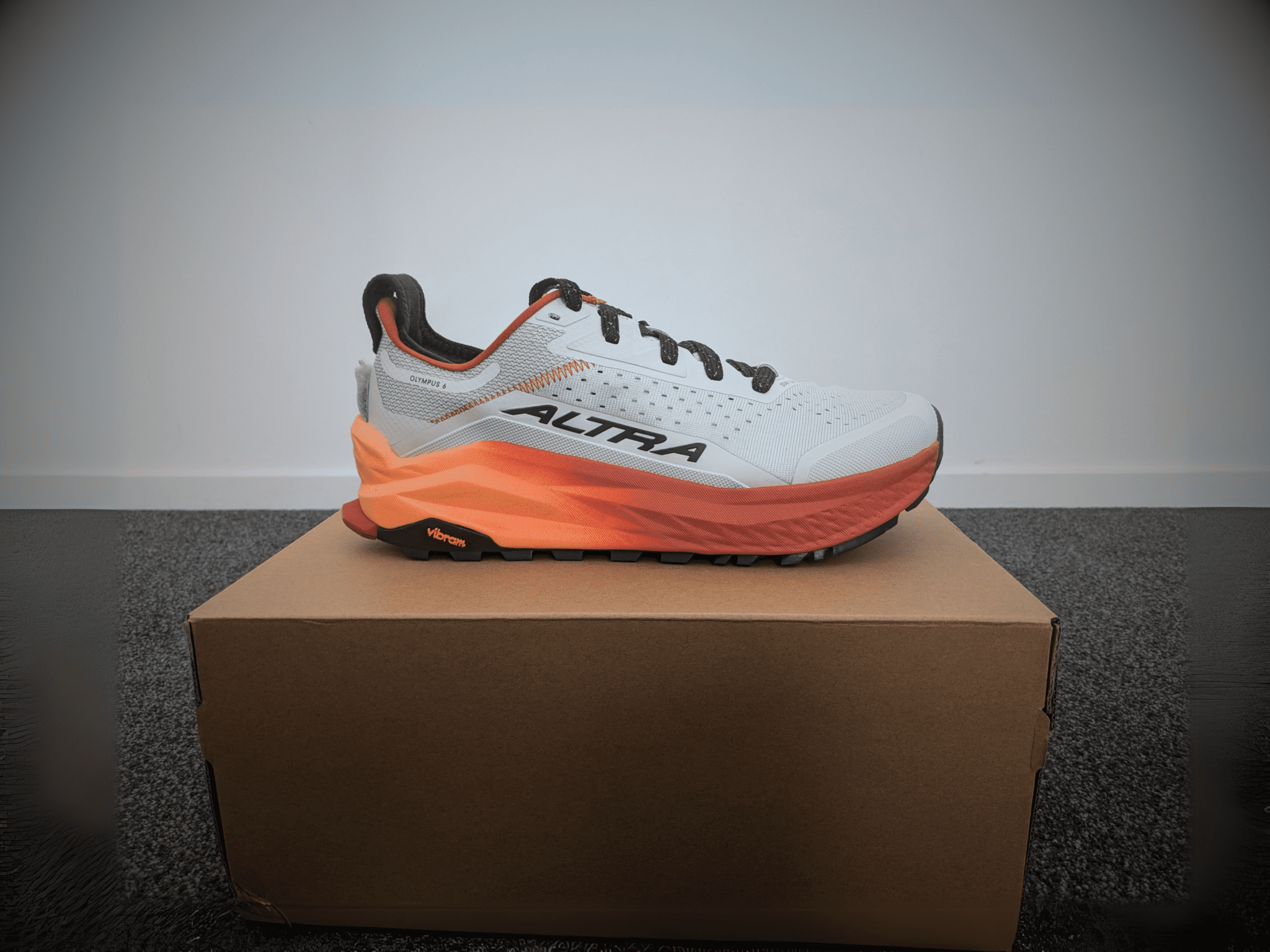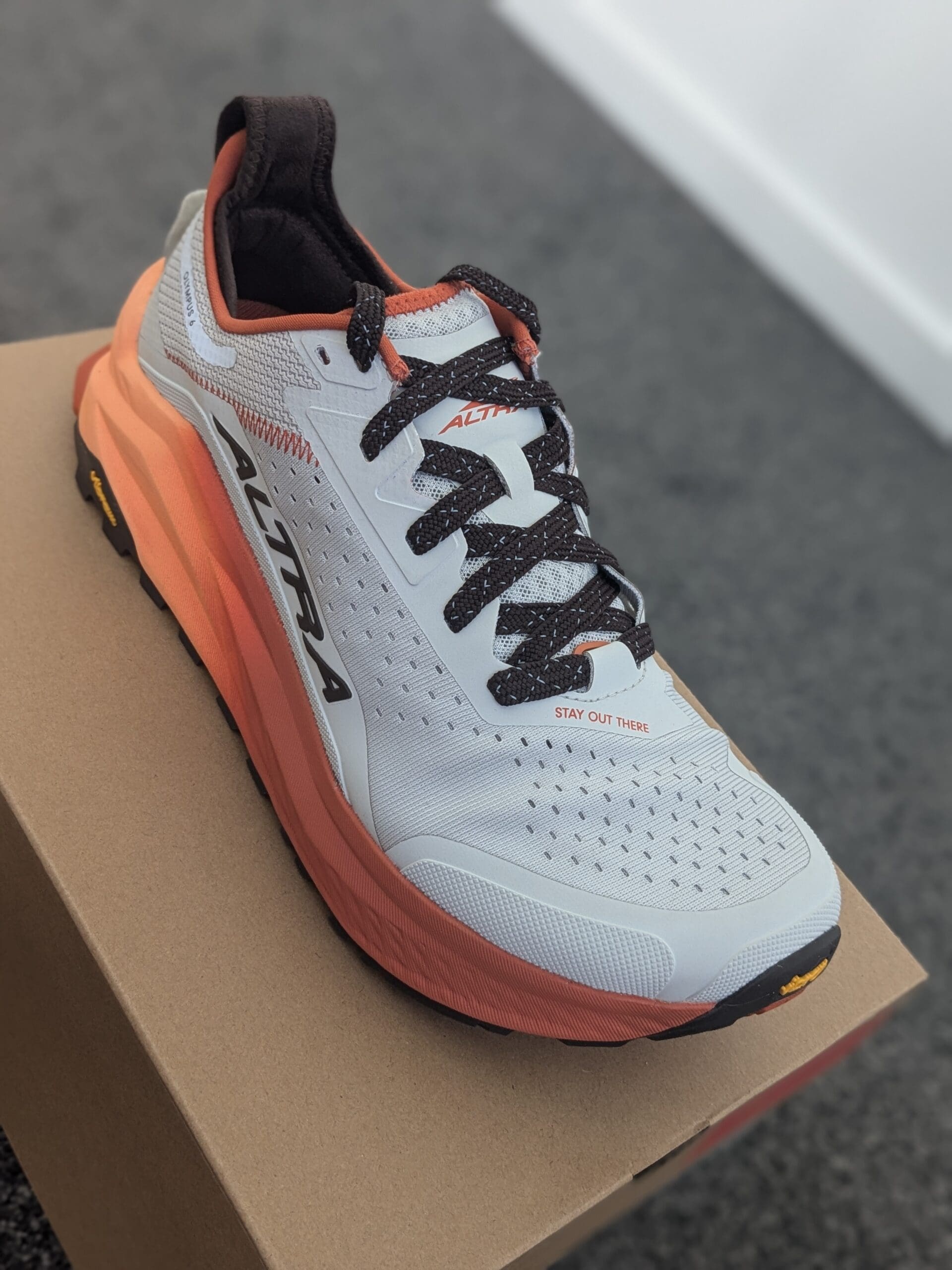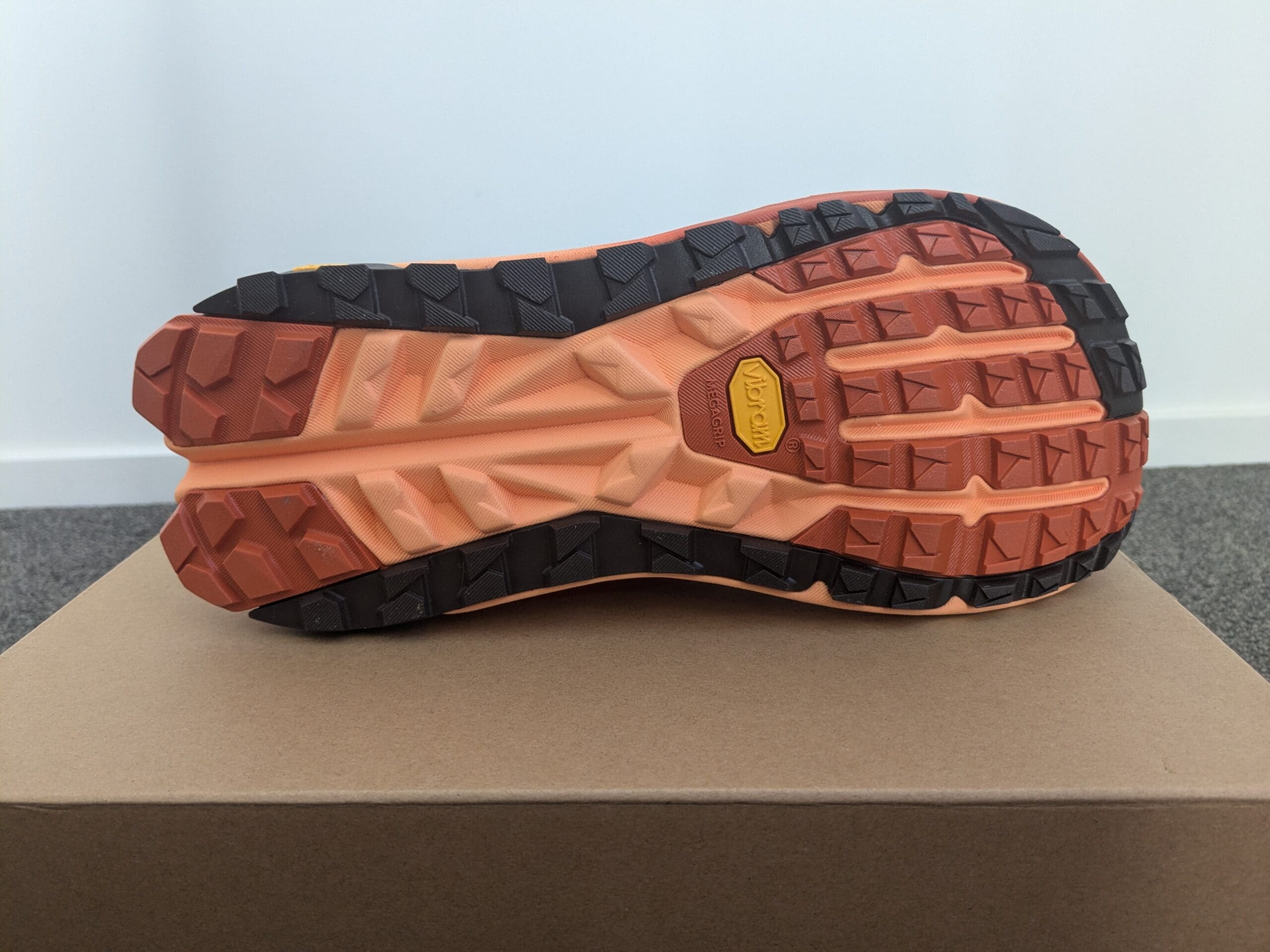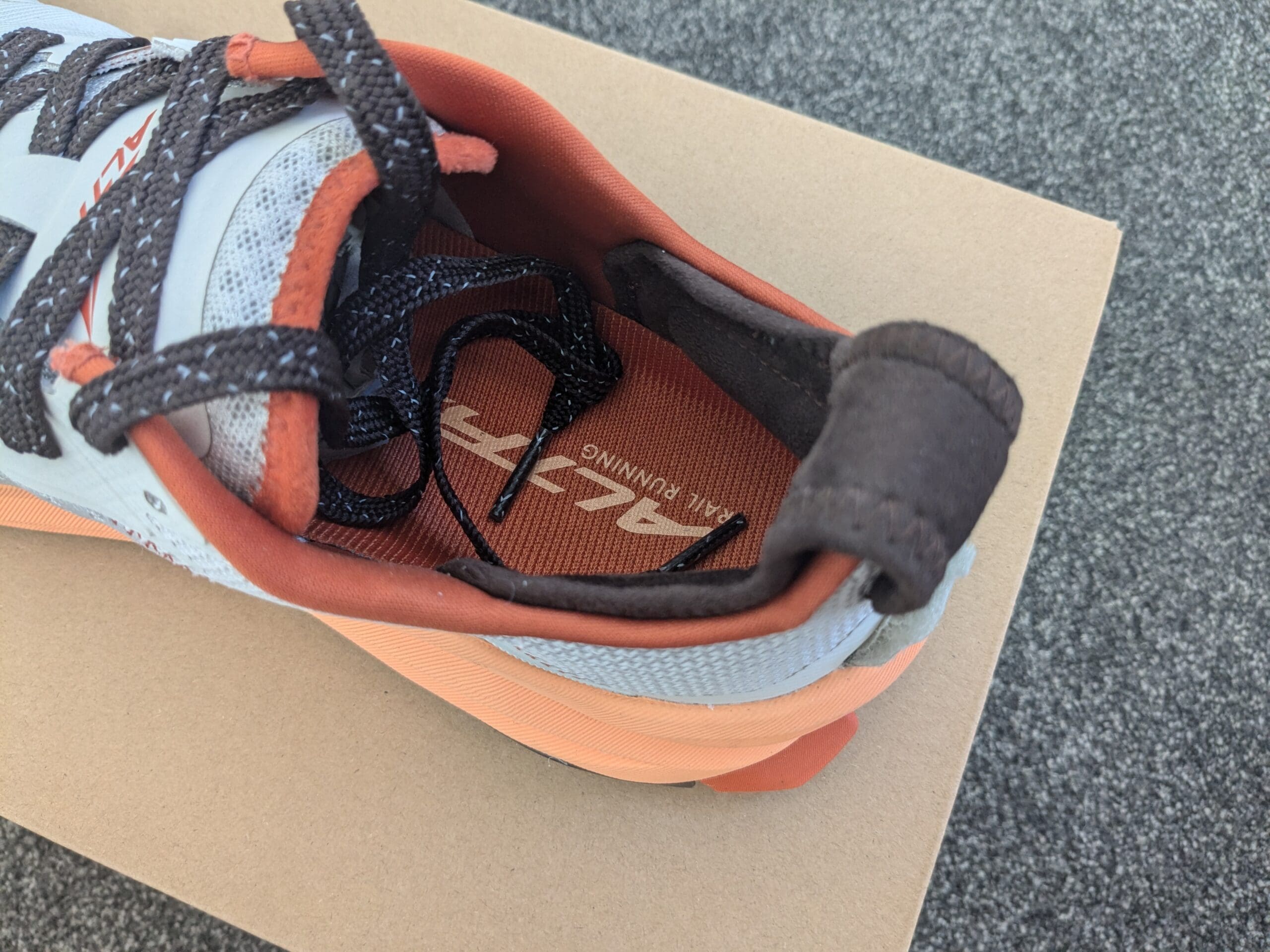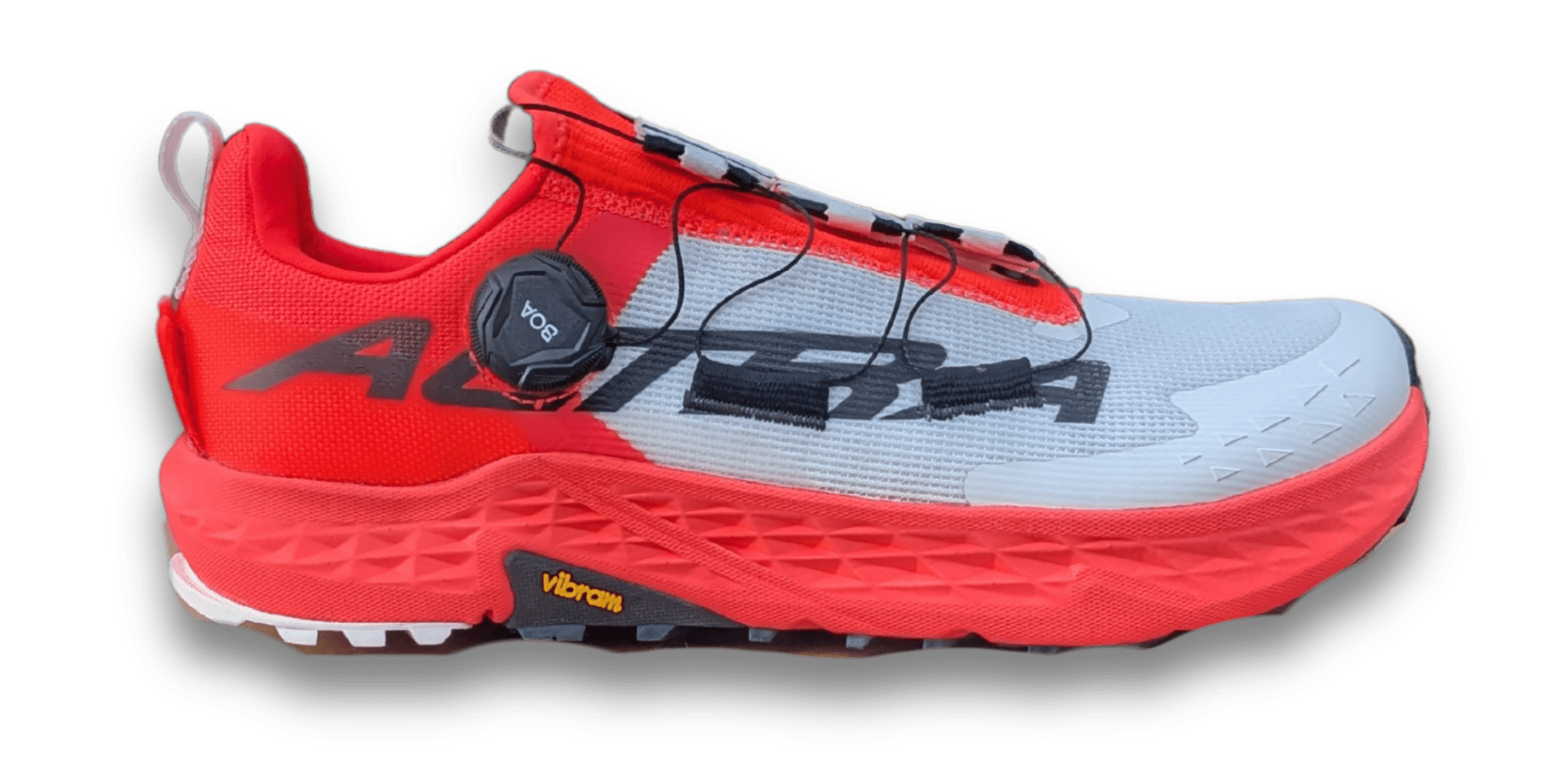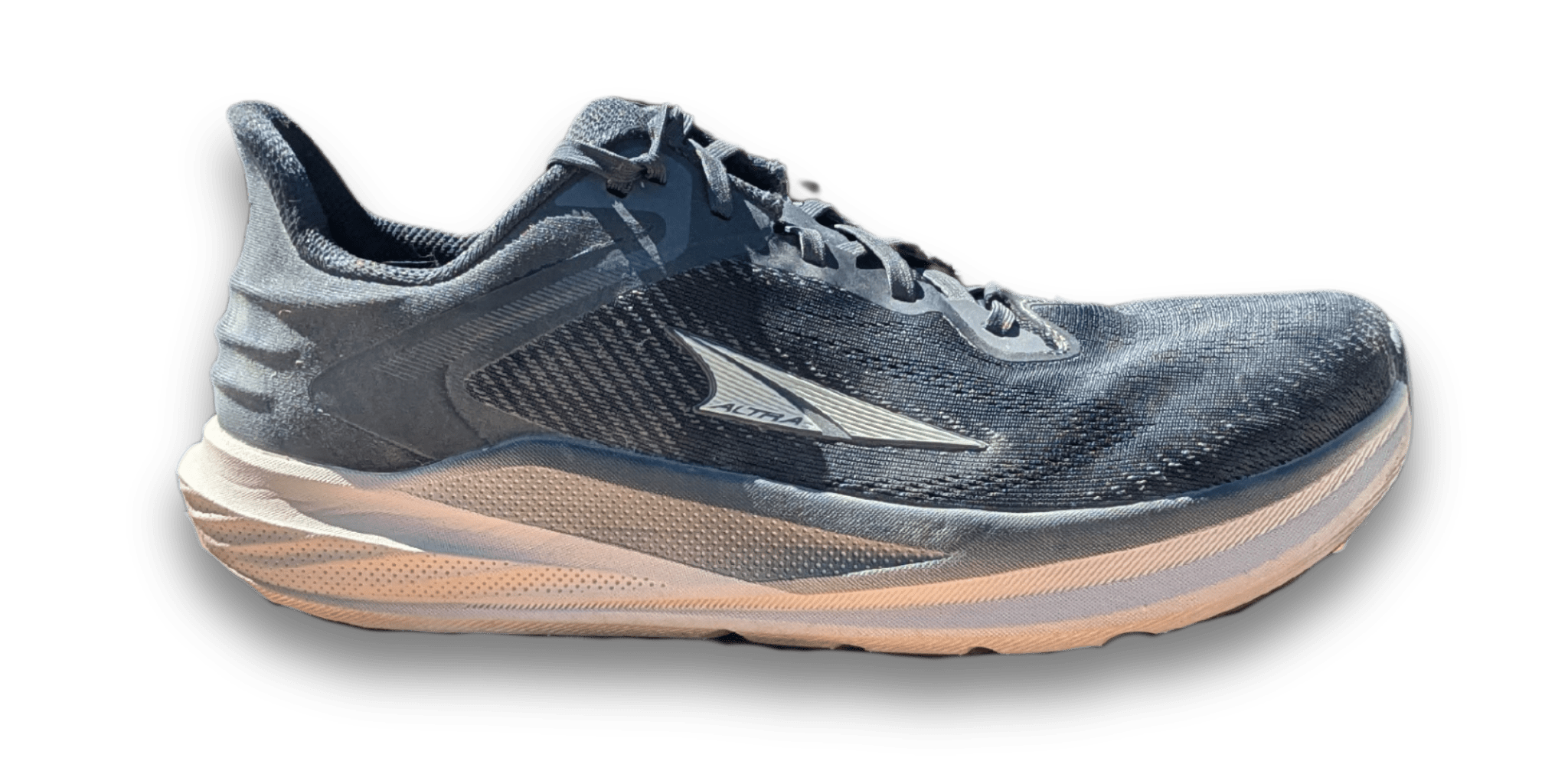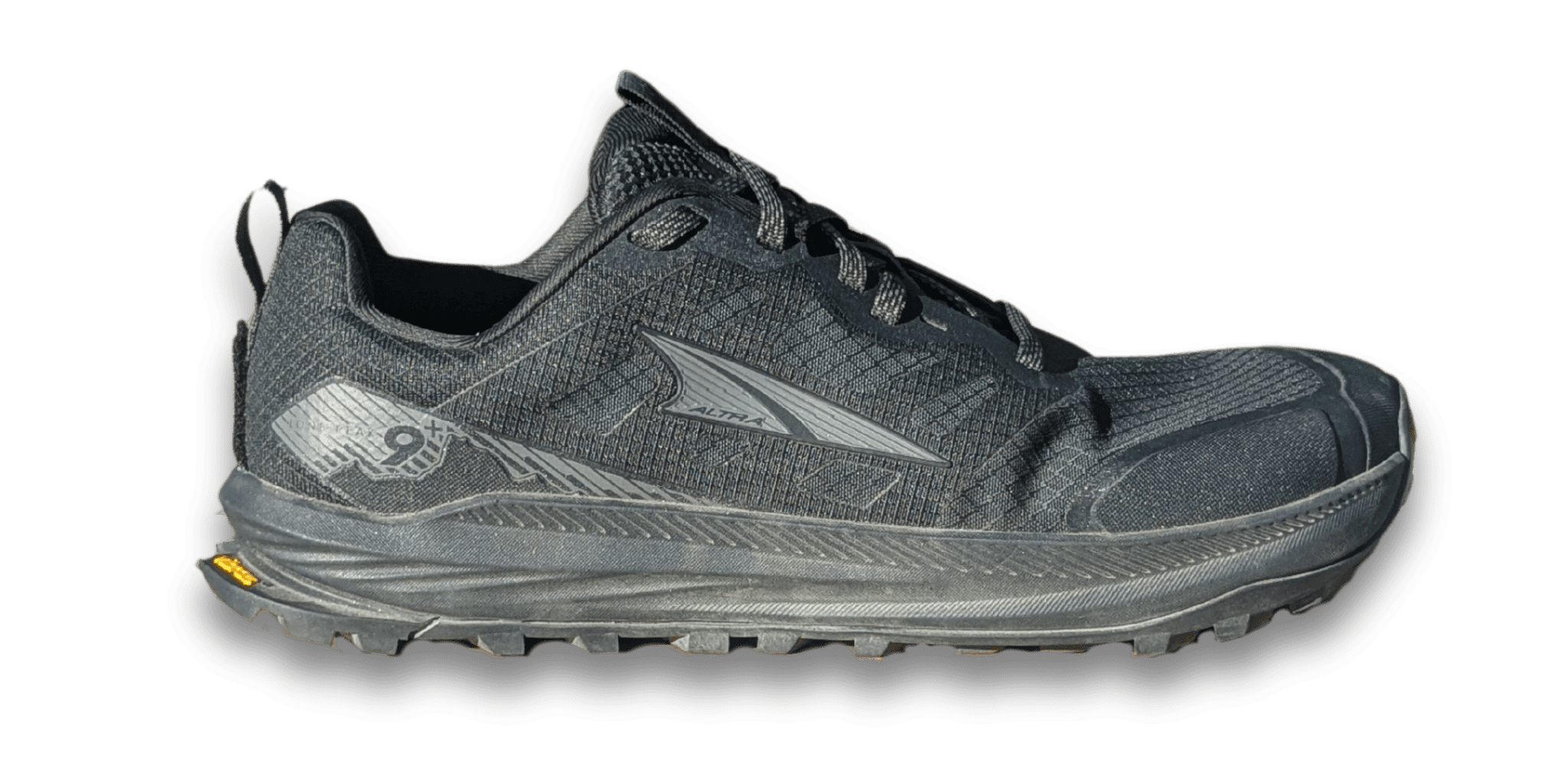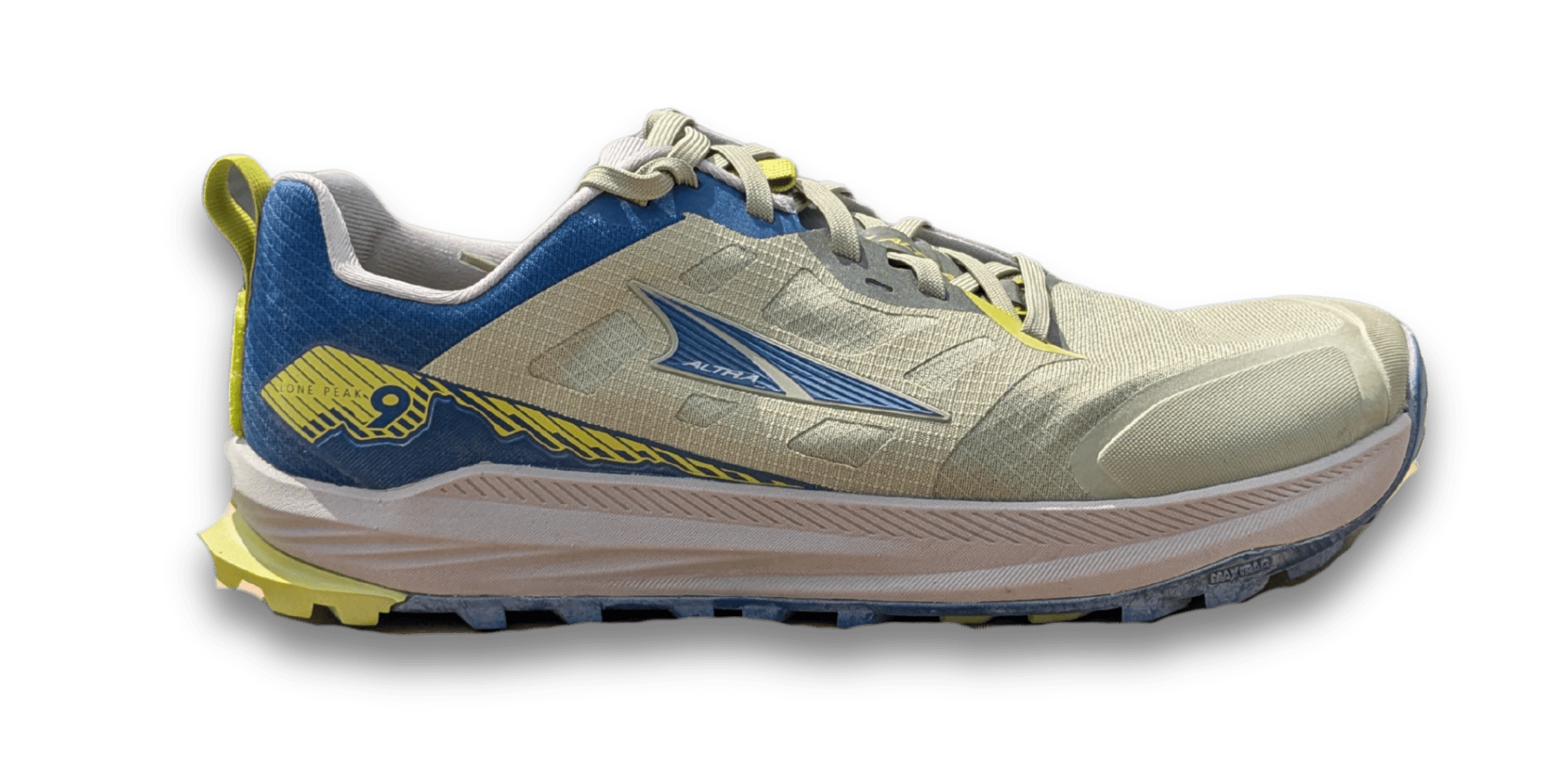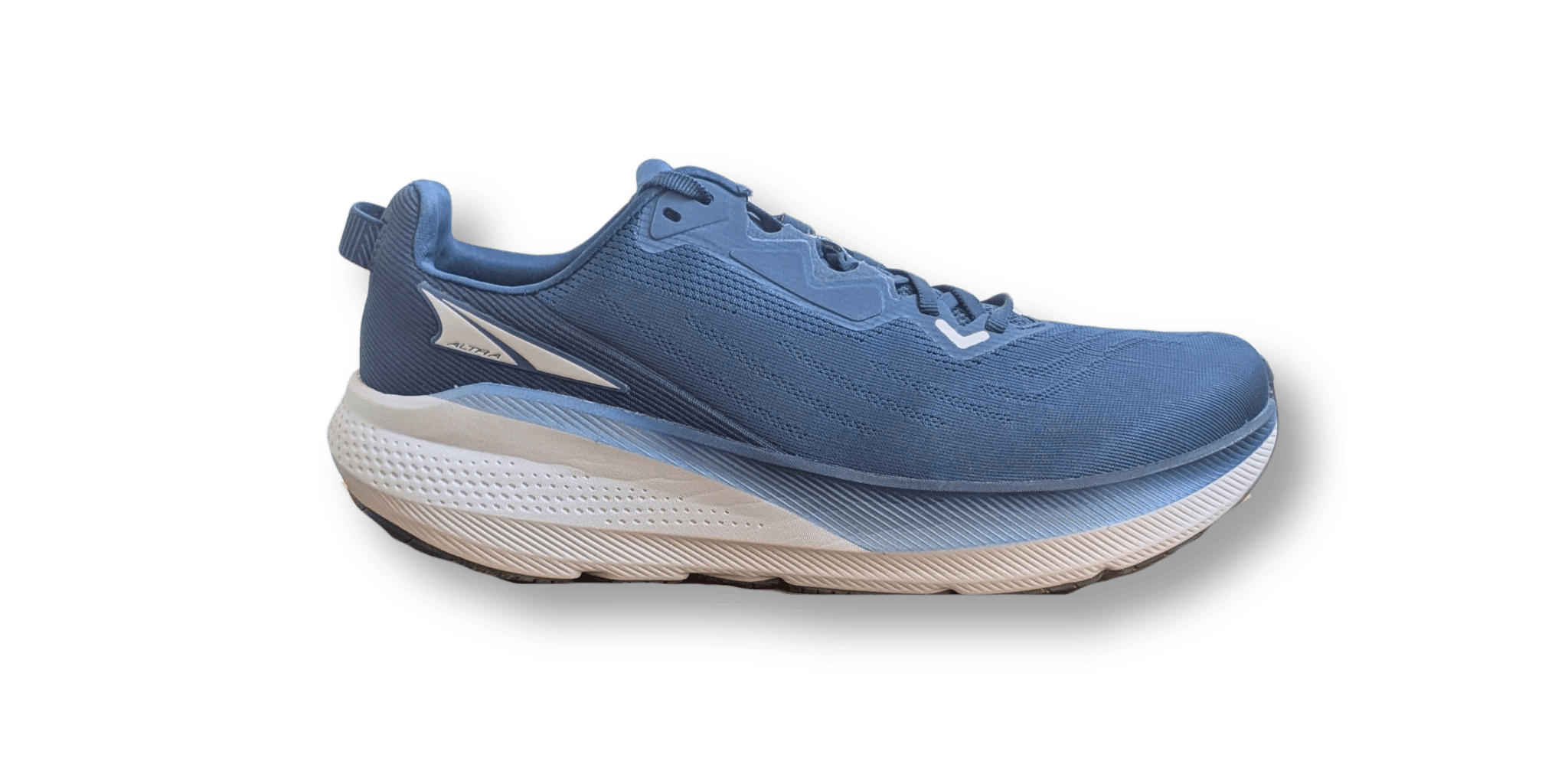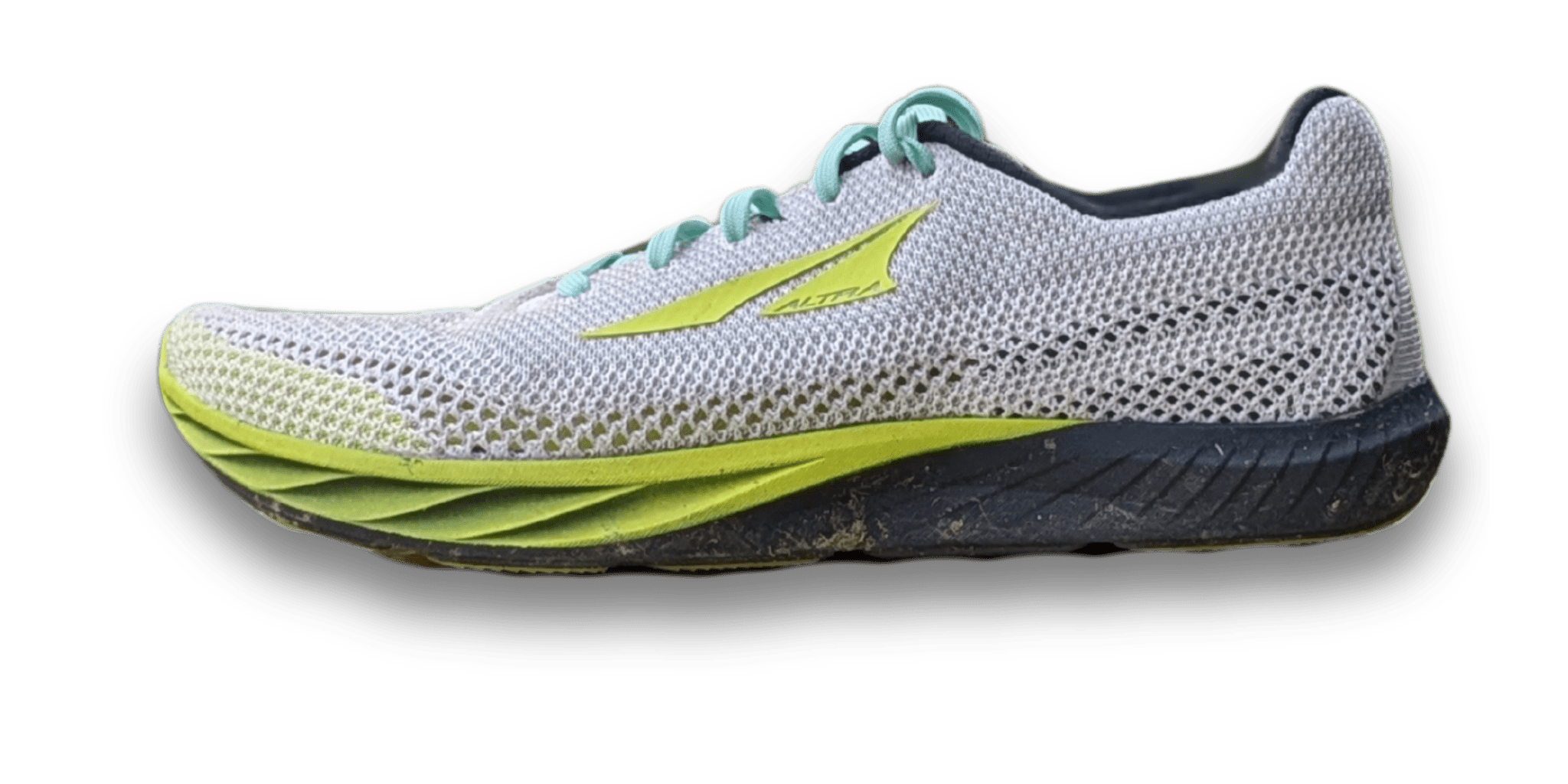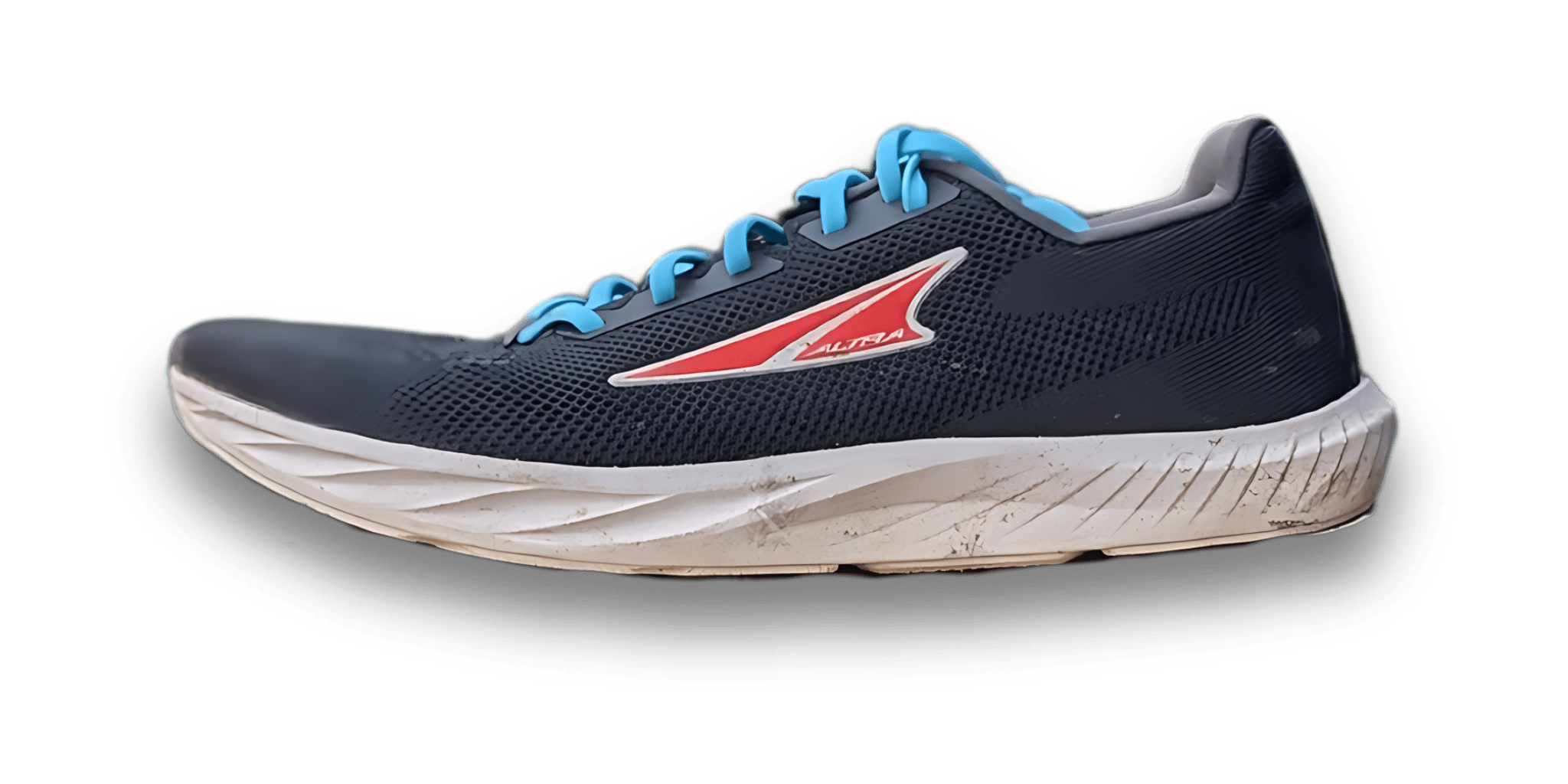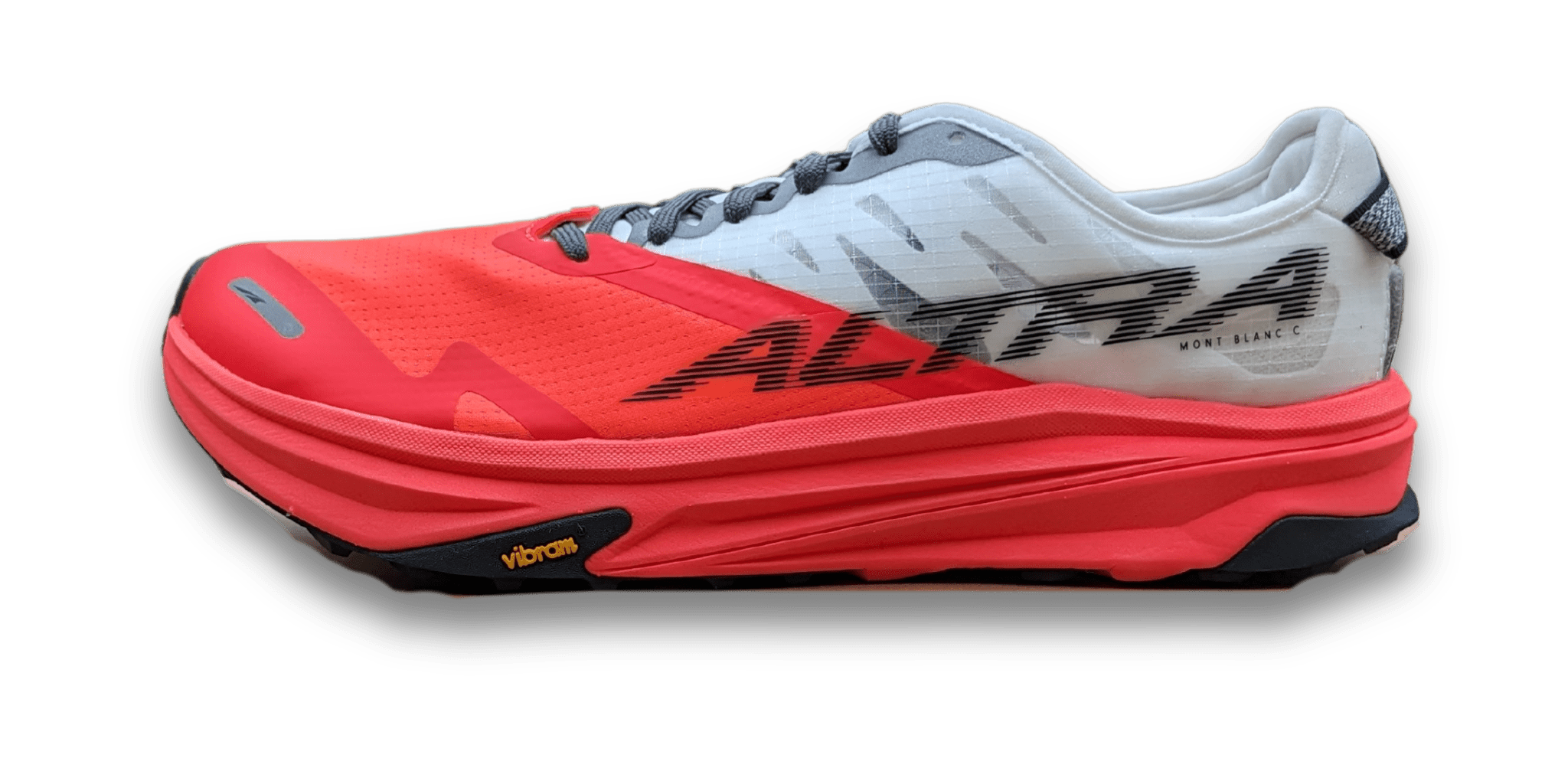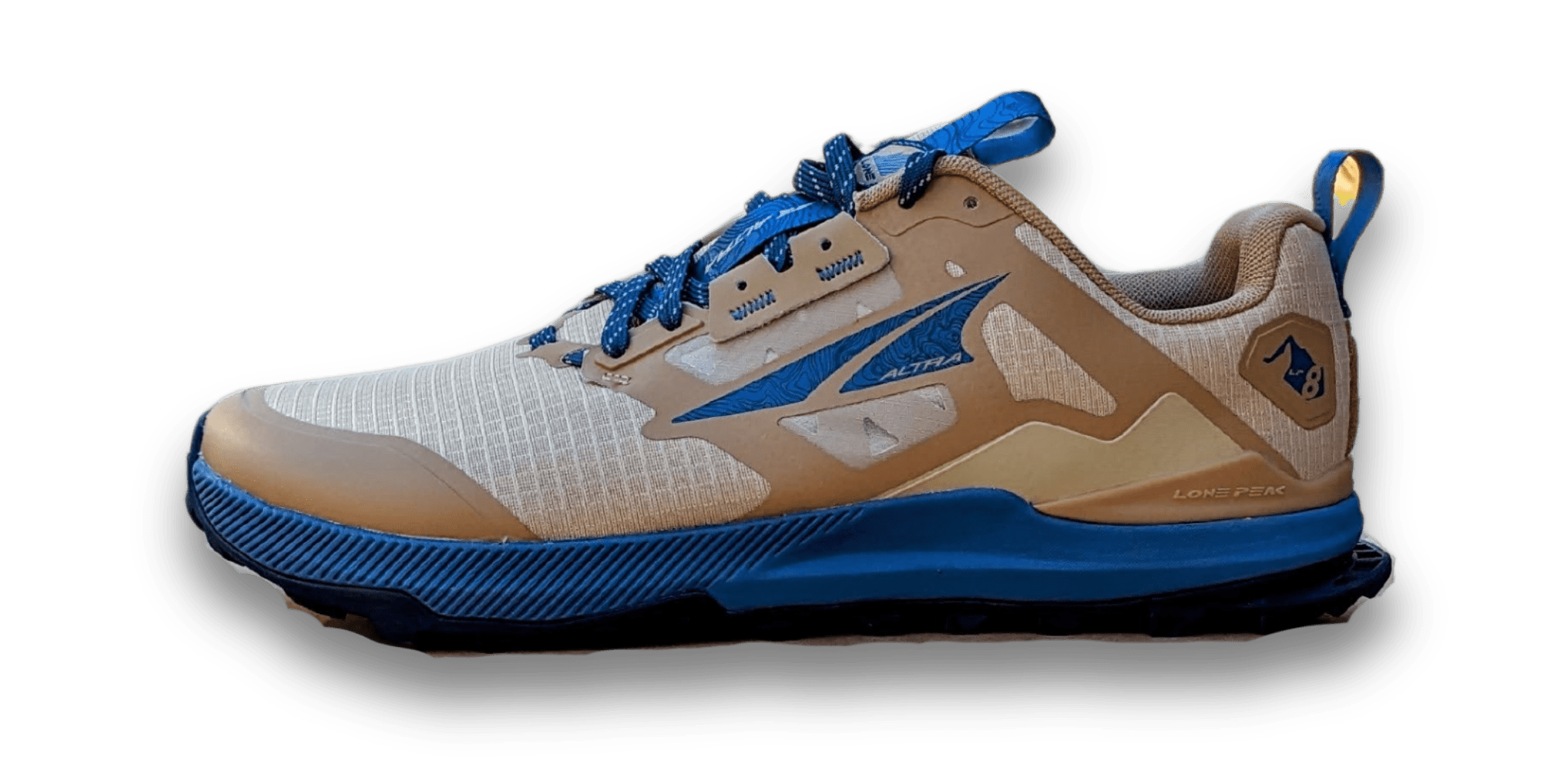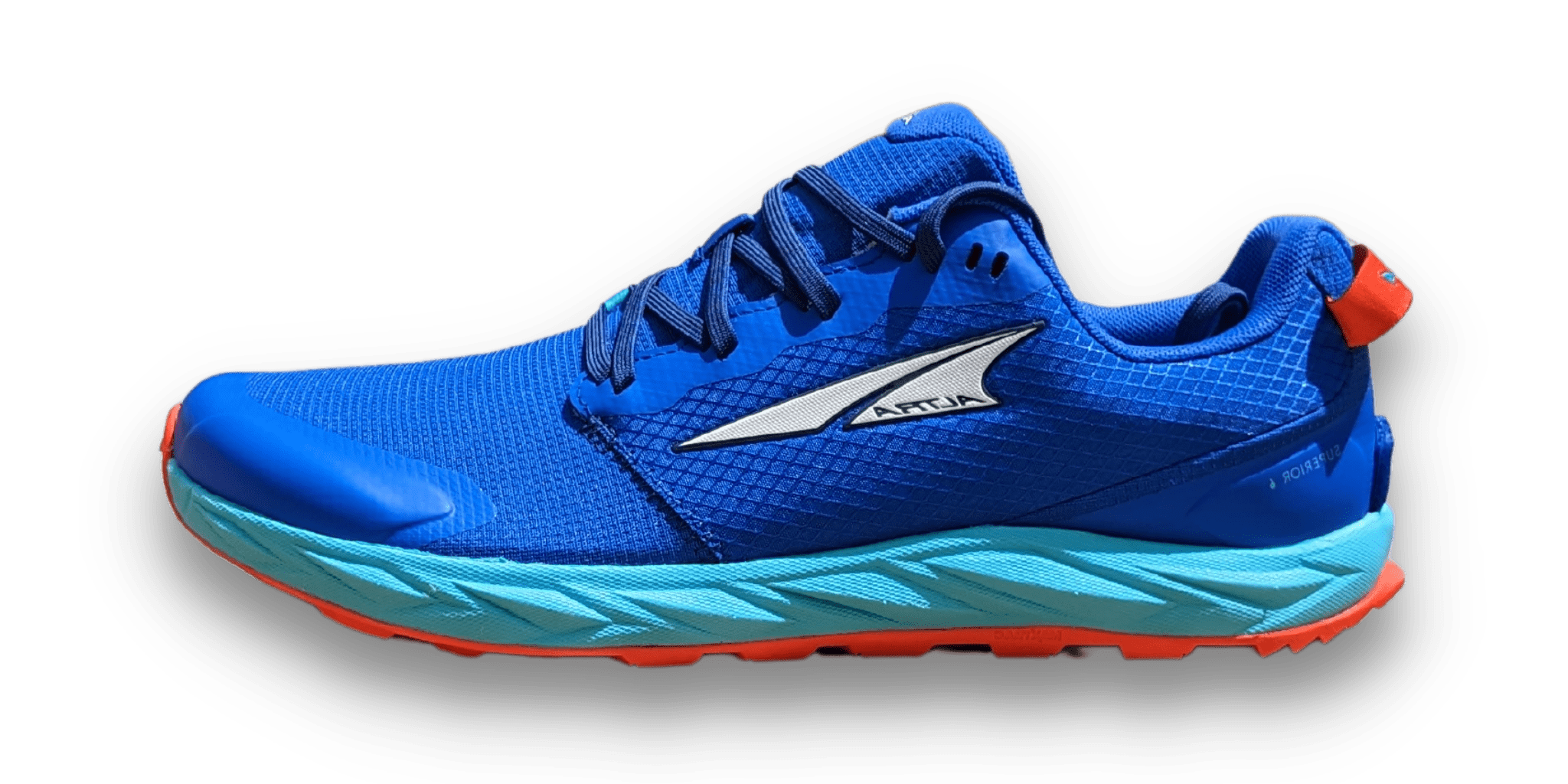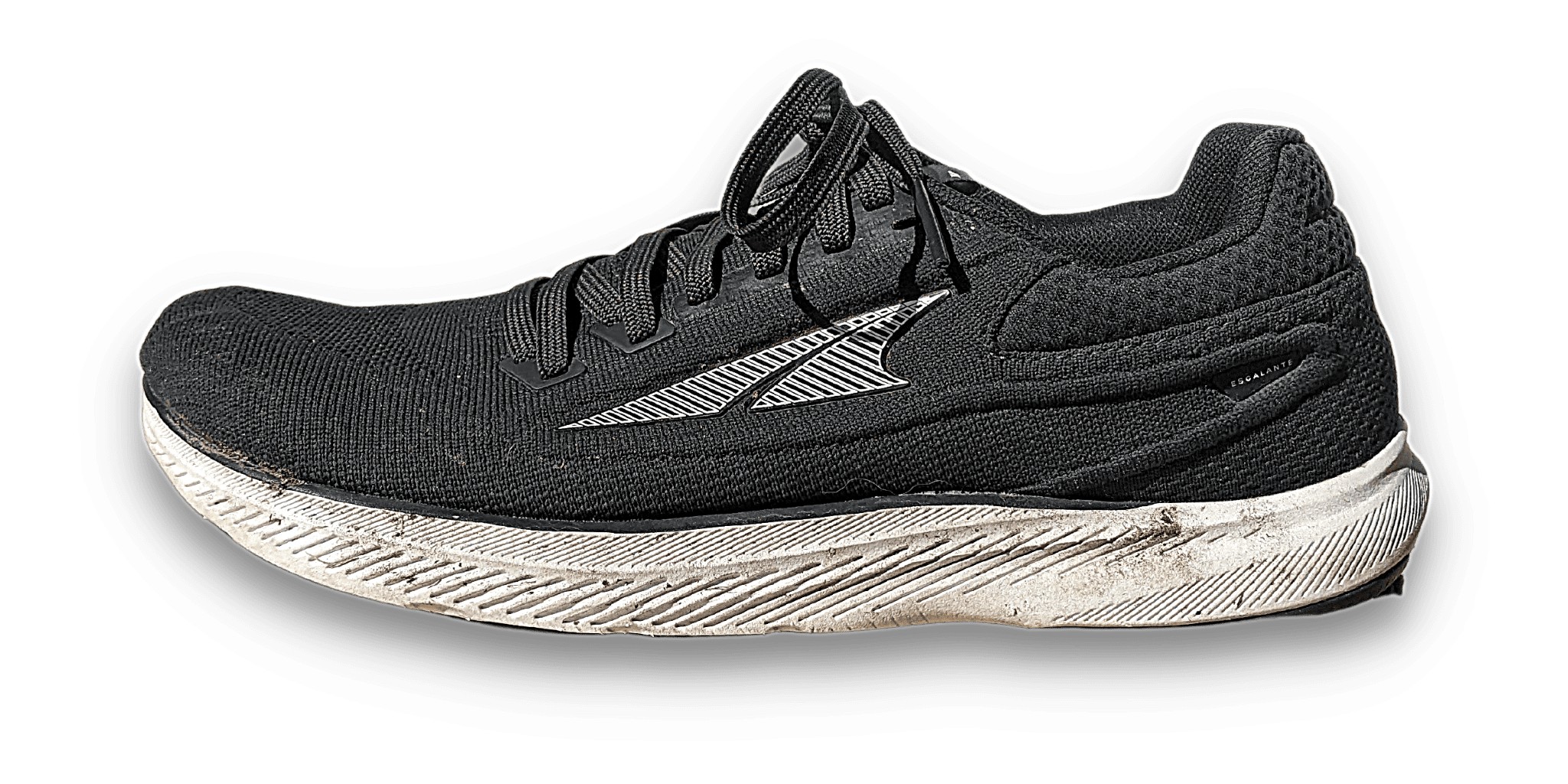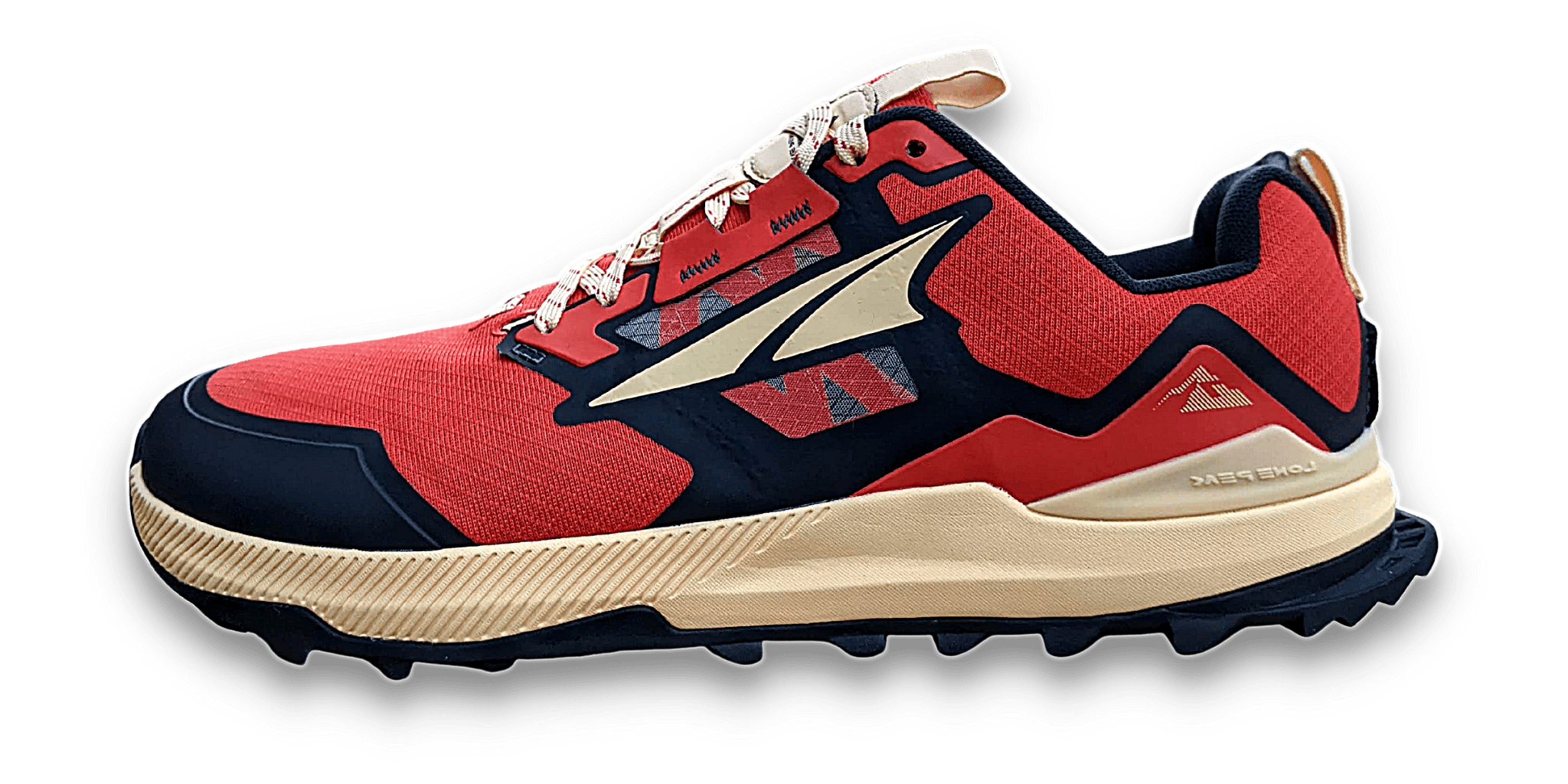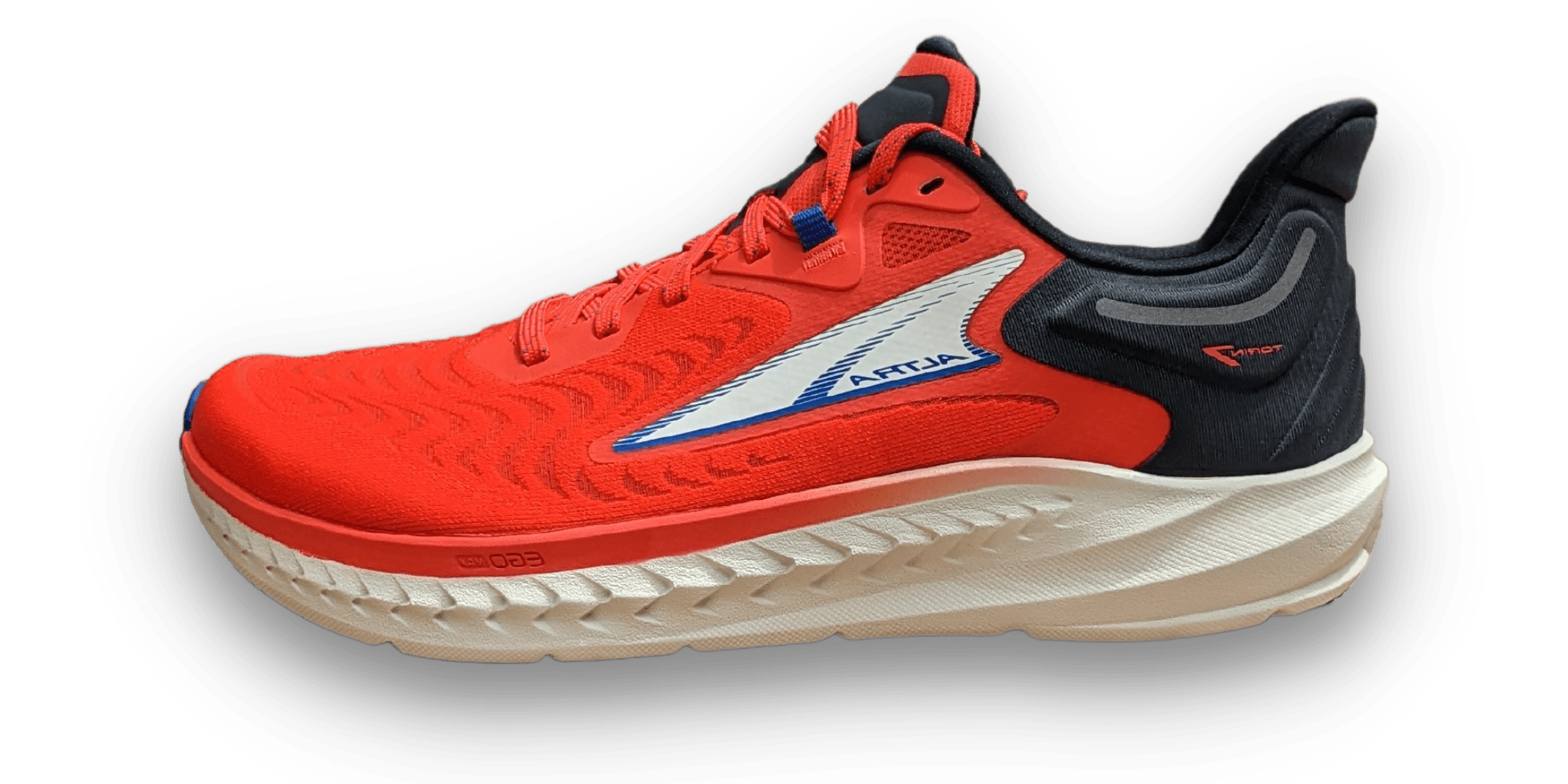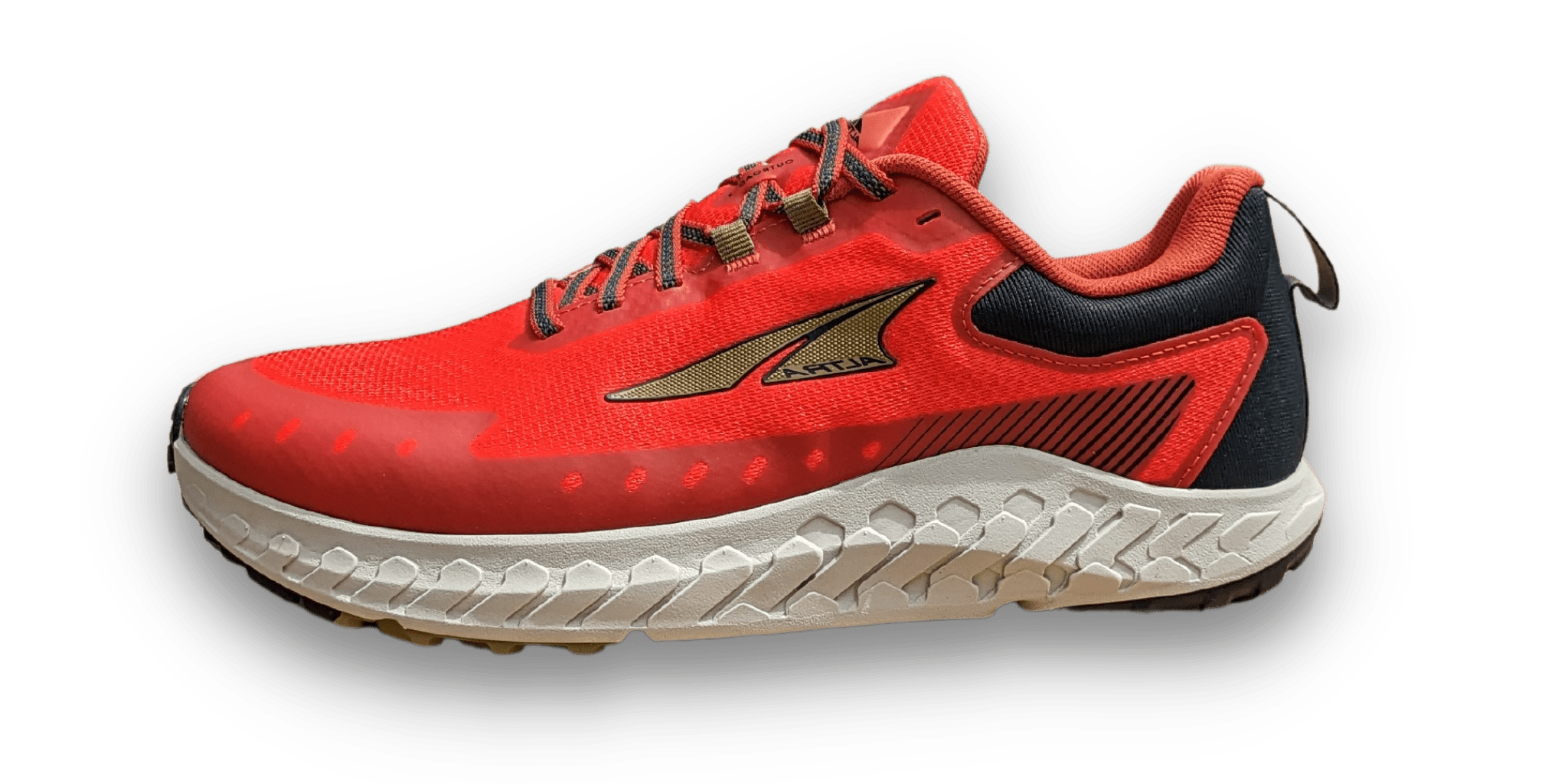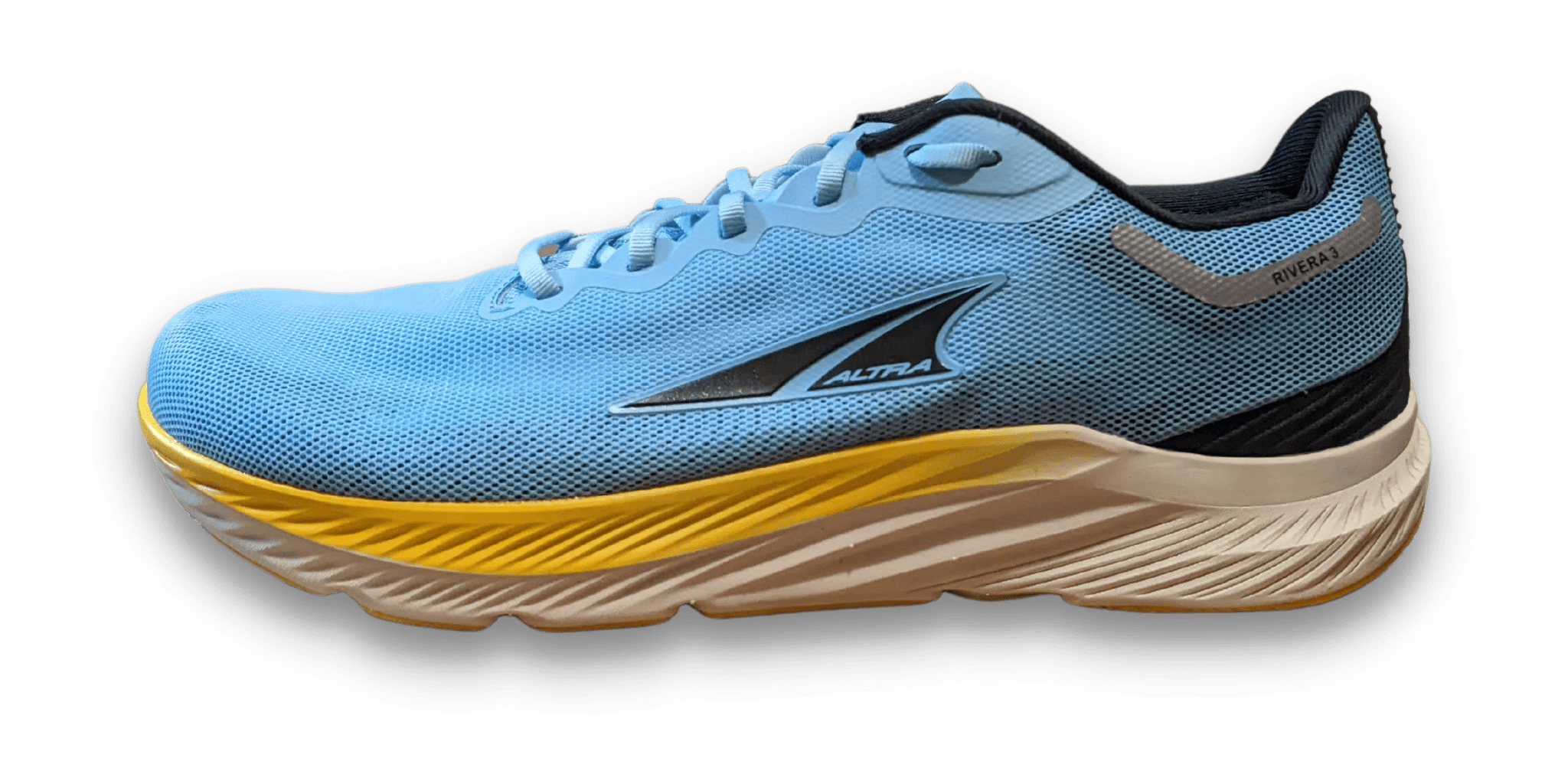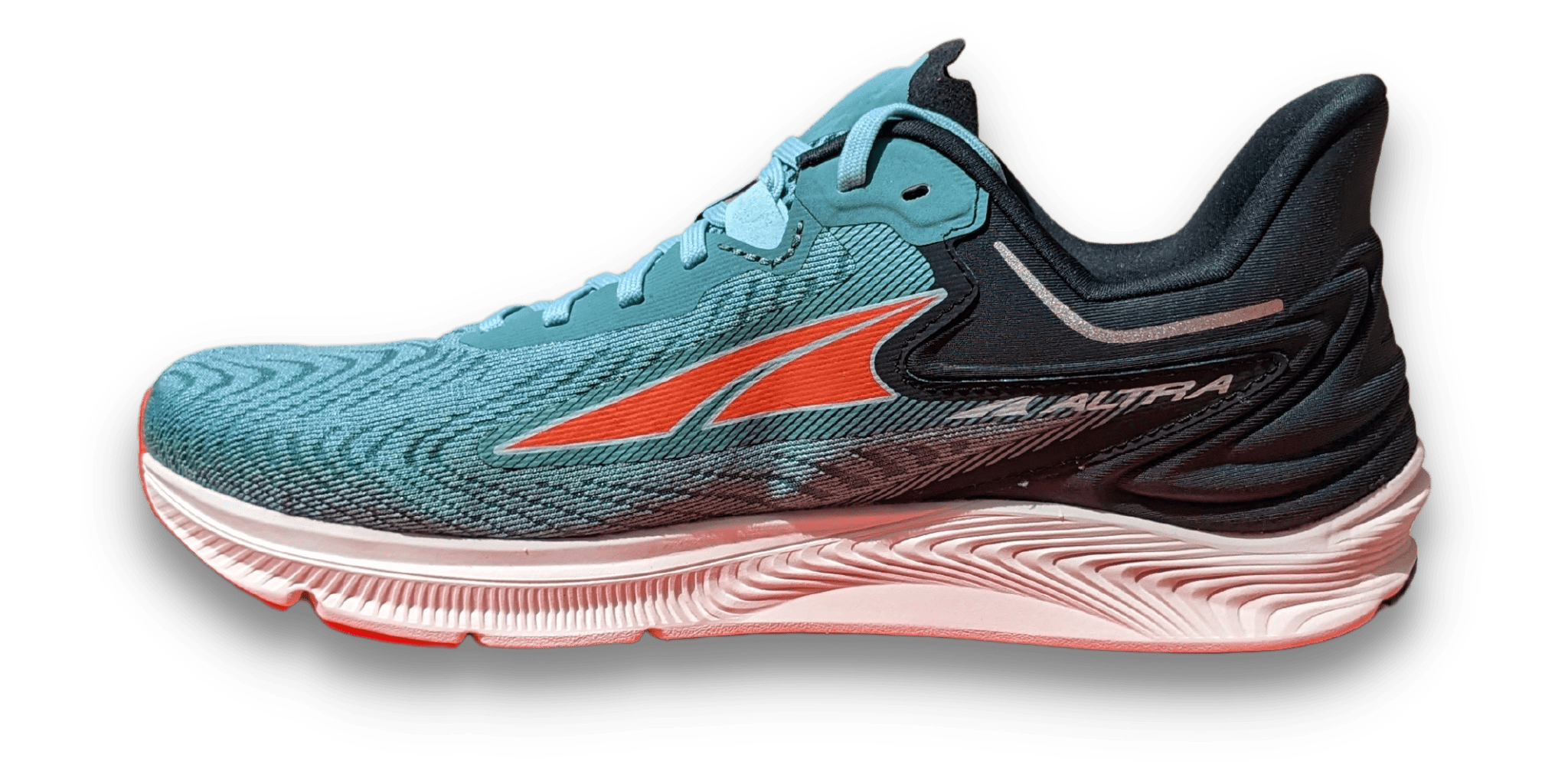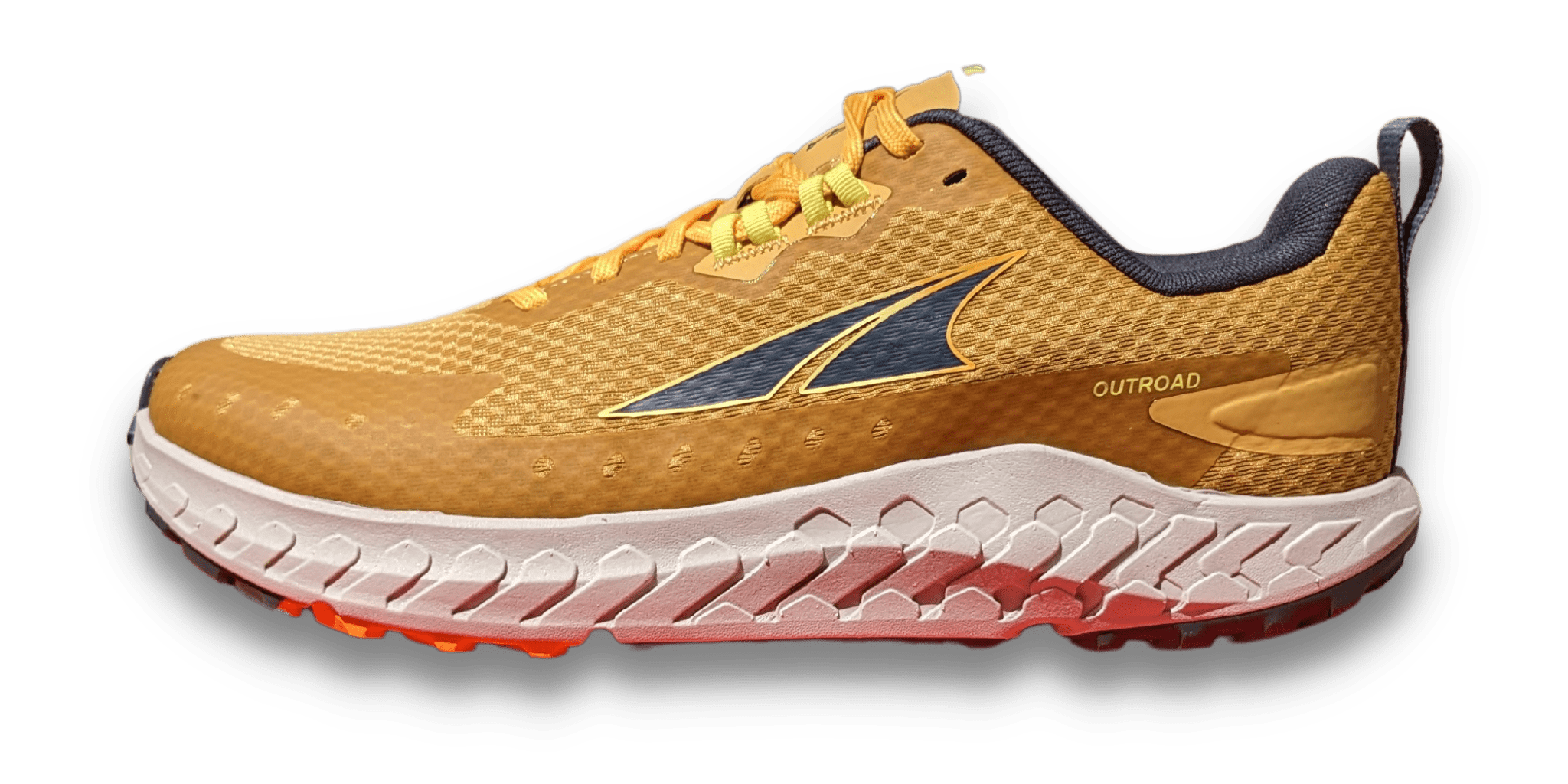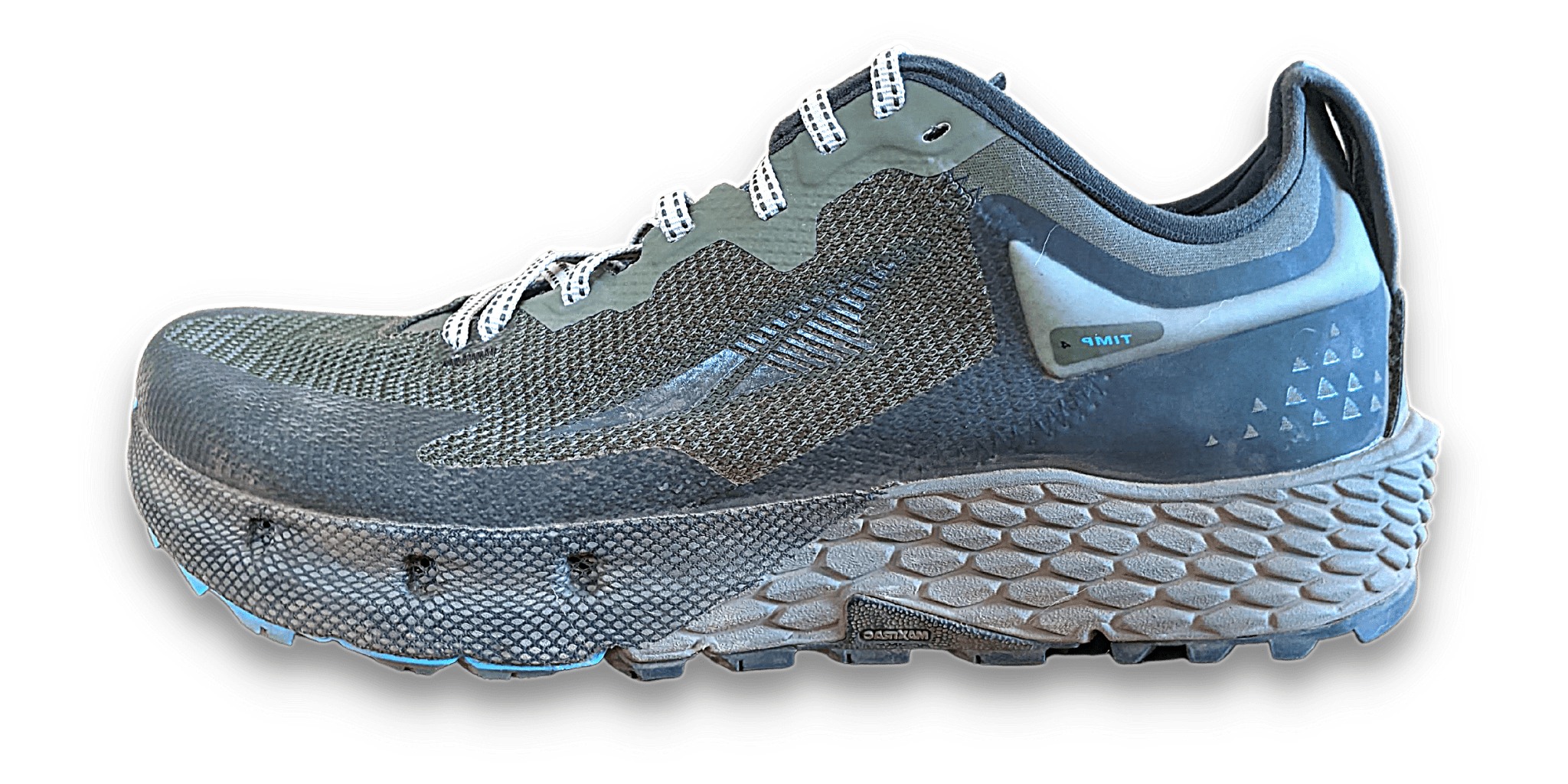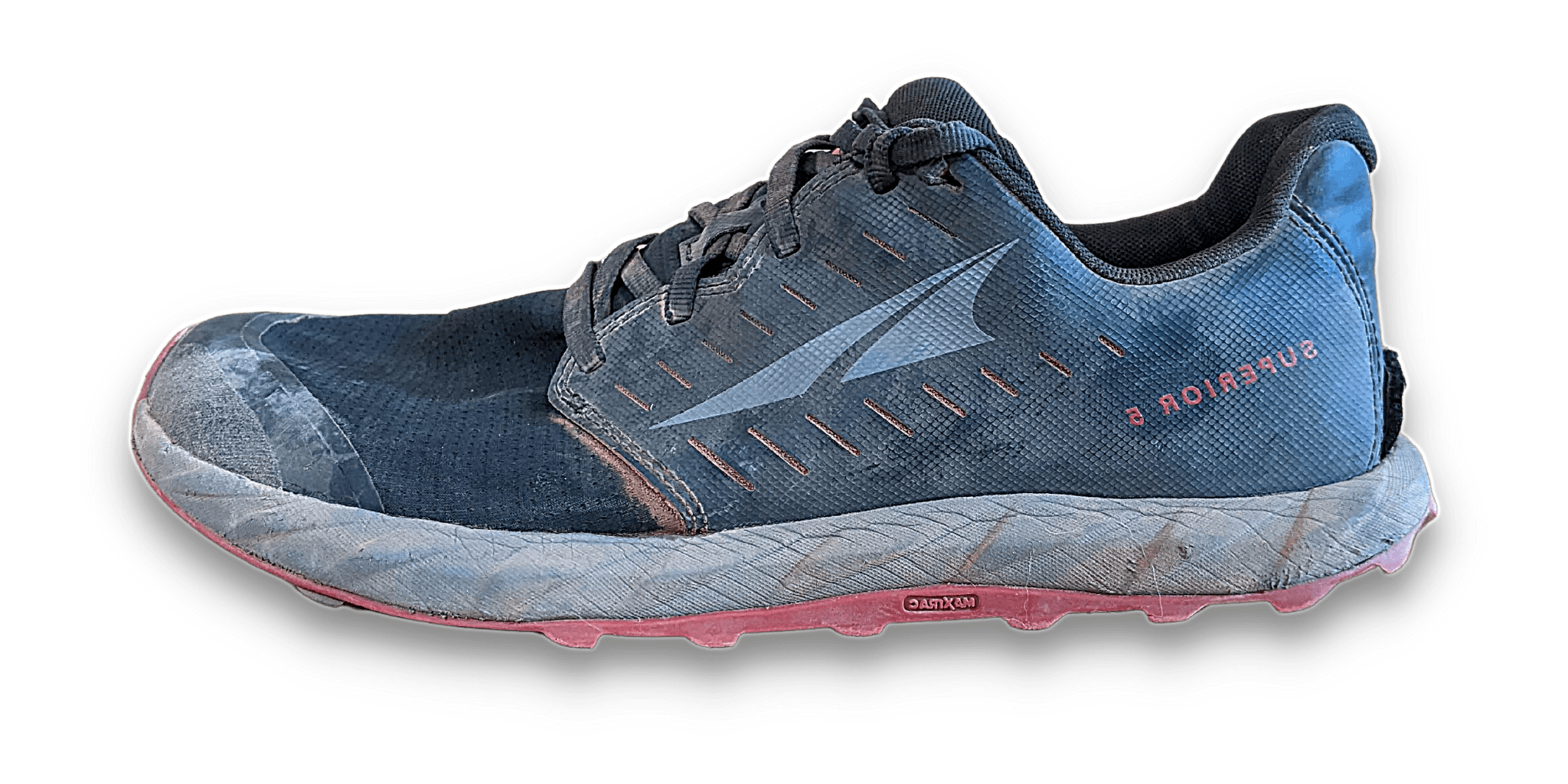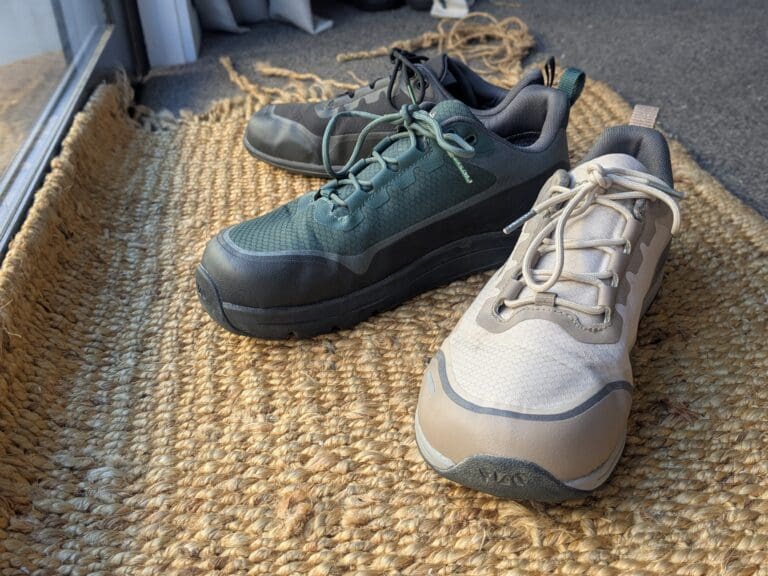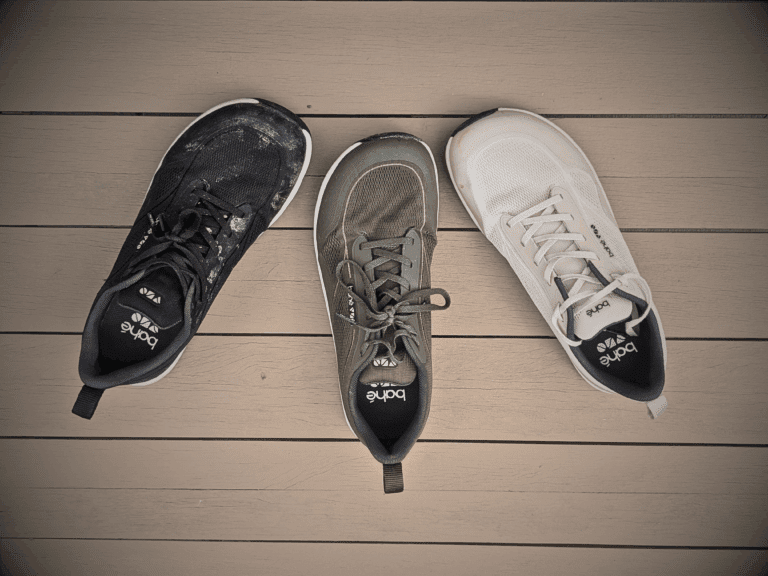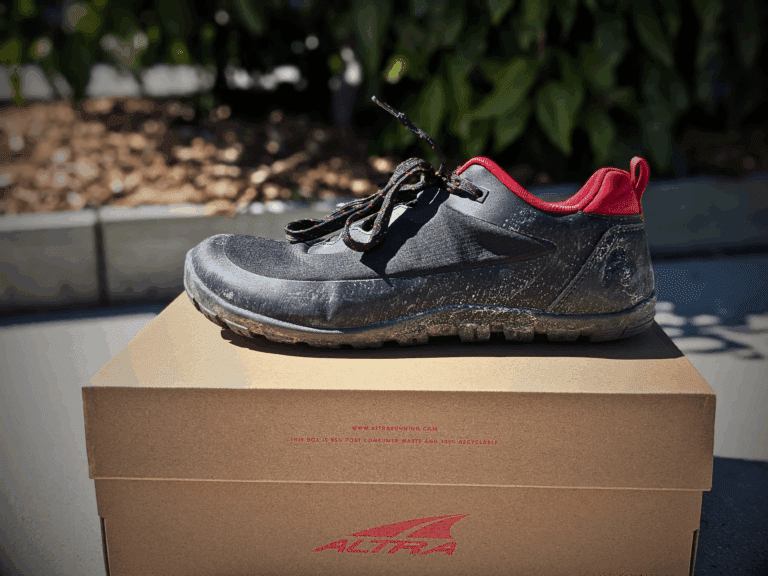Affiliate Disclosure: By clicking through the links on this page and purchasing the products, you’ll be helping me out. This is done because I receive a kickback from the sellers at no extra cost to you! Thank you so much for supporting us!
Weight
12.34 oz/ 350g for men’s US9.5
Stack height
33mm stack height
Zero Drop
Made for
LONG distance efforts
Fit
Medium volume
Medium wide midfoot
Wide Toe box
True to size
Feel
Stiff
Minimal ground feel
Stable
Pros & Cons
+ Roomy
+ Durable
– Too stacked for most instances
Ever wondered why so many people trust the Altra Olympus for those grueling ultra-distance runs?
With its super high 33mm stack height, it’s not in my normal wheelhouse as a minimalist runner, but as a mainstay of the Altra lineup, I thought it was worth putting it through its paces.
This is a tool for a very specific job.
Designed for less technical terrain, it offers a ton of neutral stability (not always good) and comfort for those long adventures. Plus, it addresses past issues with improved durability, making it a more reliable choice.
Ready to dive deeper? Let’s explore the fit, feel, and durability of the Altra Olympus 6.
The overall fit of the Altra Olympus 6 feels true to size, but you could argue a ½ size up as a late race swap out. This model’s generous toe box allows for a decent toe splay, and the average depth of the shoe provides a snug yet comfortable fit, ensuring that the foot is securely held in place without feeling constricted. Opting for a half-size-up can offer additional comfort for those who prefer a bit more room, especially during ultra races.
Thanks to its squared-off design, it offers ample space for both the big toe and little toes. This design accommodates natural toe splay and reduces the risk of blisters and discomfort during extended runs. By allowing the toes to spread naturally, the shoe enhances your natural stability and avoids foot injuries, making it an excellent choice for ultra-distance runners who prioritize foot health and performance.
The midfoot fit of the Altra Olympus 6 is surrounded by overlays that provide added stiffness, which can be a double-edged sword for some runners. While these overlays contribute to the shoe’s overall support and structure, they may feel restrictive, especially for those with a wider midfoot. A break-in period may be necessary to allow the materials to soften and adapt to the foot’s shape, ensuring a more comfortable fit over time. This amount of structure will be uncomfortable for many of us barefoot-style runners.
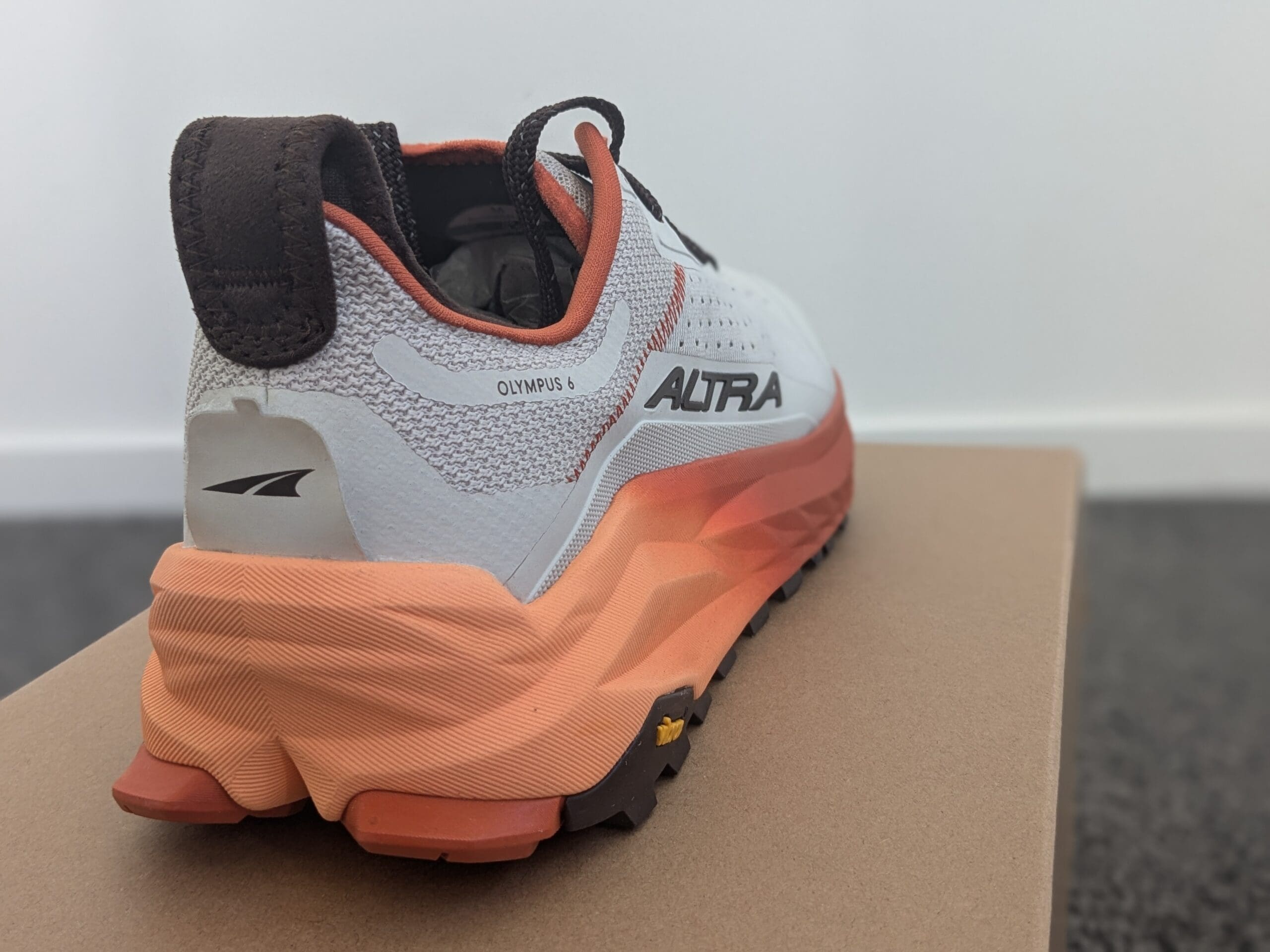
Cushioned bumpers in the heel enhance the lock down, though they may initially cause some discomfort. These bumpers, crafted from a material similar to faux leather, grip your heel in place. However, some runners might experience initial irritation or rubbing until the shoe is properly broken or until you’ve dialed in the lacing. But things tend to go well once you’ve found that sweet spot.
The depth strikes a balance between models like the Superior and Lone Peak. This depth provides a snug fit that secures the foot without feeling overly tight, making it suitable for various foot shapes. Compared to the Superior and Timp, the Olympus 6 offers more room, which can benefit runners who experience foot swelling during long runs. Meanwhile, it doesn’t feel as deep as the Lone Peak, which some may find too spacious.
Be careful of those high ankle cuffs! During my first run, I used my normal ankle socks, and my skin was torn around the ankles. After that point, I stuck to higher socks and never had the same issue.
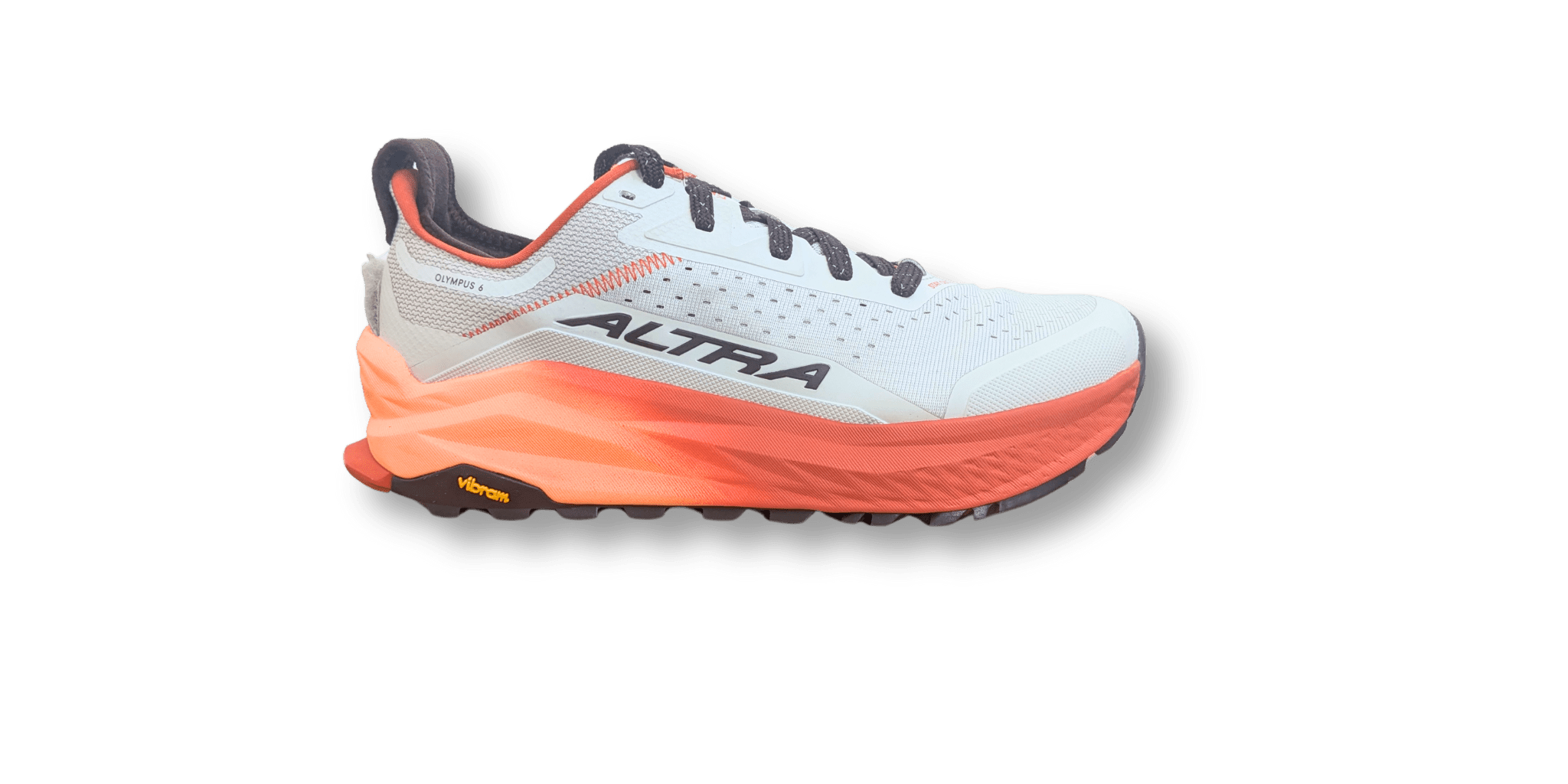
Altra Olympus 6
The stiffness of the Altra Olympus 6 is a blessing and a curse. The midsole, crafted from compression-molded EVA foam, provides a firm yet responsive base that supports the foot but also feels lifeless. With so much foam underfoot, it’s hard to get a sense of what surface you’re on, meaning that technical terrain is unnerving. Now, taking these shoes onto flatter rolling terrain helps the shoe shine. It allows your legs to keep rolling and lessens the stress on your feet. For longer races, this can be ideal.
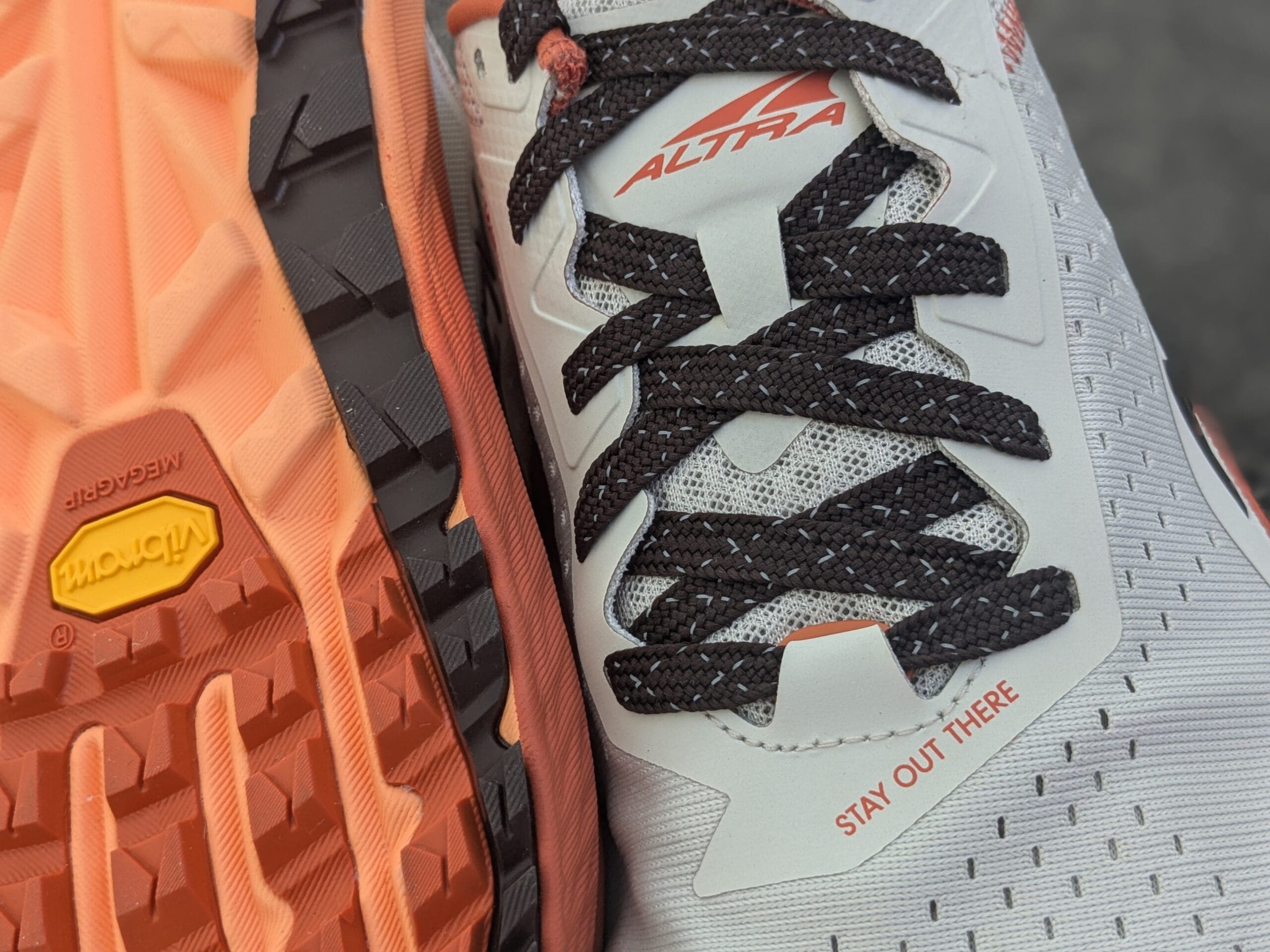
We’ve often trusted the Olympus outsole thanks to the Vibram Megagrip rubber that delivers reliable traction across diverse surfaces. This rubber compound is known for its exceptional grip, ensuring stability and confidence while navigating rocky trails or smoother paths. While not overly aggressive, the lug 3-4mm deep pattern effectively handles dry to mildly wet conditions, making it a versatile choice for various terrains. I would only hesitate with this shoe in muddy, wet environments.
This shoe comes stacked and is not suitable for all. With a substantial stack height of 33 millimeters, I’d say the Olympus has too much foam underfoot. The only situations where such a stack height could be warranted is if someone is running a VERY long distance and does not have foot strength or if you’re looking for a faster time. Hugh cushioning helps both those situations. Outside of that, focusing on foot health and ground feedback is likely more beneficial, especially in training.

The Olympus is built with stability in mind. While this is technically still classed as a neutral shoe, you’ll feel a lot of stability components built in. Higher midsole walls, stiffer overlays, and a wide, flat base all push your foot into a certain range of motion. In the long term, this is not ideal if you want to improve your foot health, but it may get you moving again or help you extend your distances to hit your goals. It’s important to be mindful when using tools such as the Olympus.

Altra Olympus 6
Even though the Vibram rubber is great, the outsole remains the weakest part of the shoe. That’s because not all the outsole is covered with Vibram; many areas are exposed foam and are susceptible to wear, particularly on sharp or rocky surfaces. But there’s a trade-off here. With more rubber comes more weight, and Olympus needs to shave off as much weight as possible. So, this design decision makes sense.
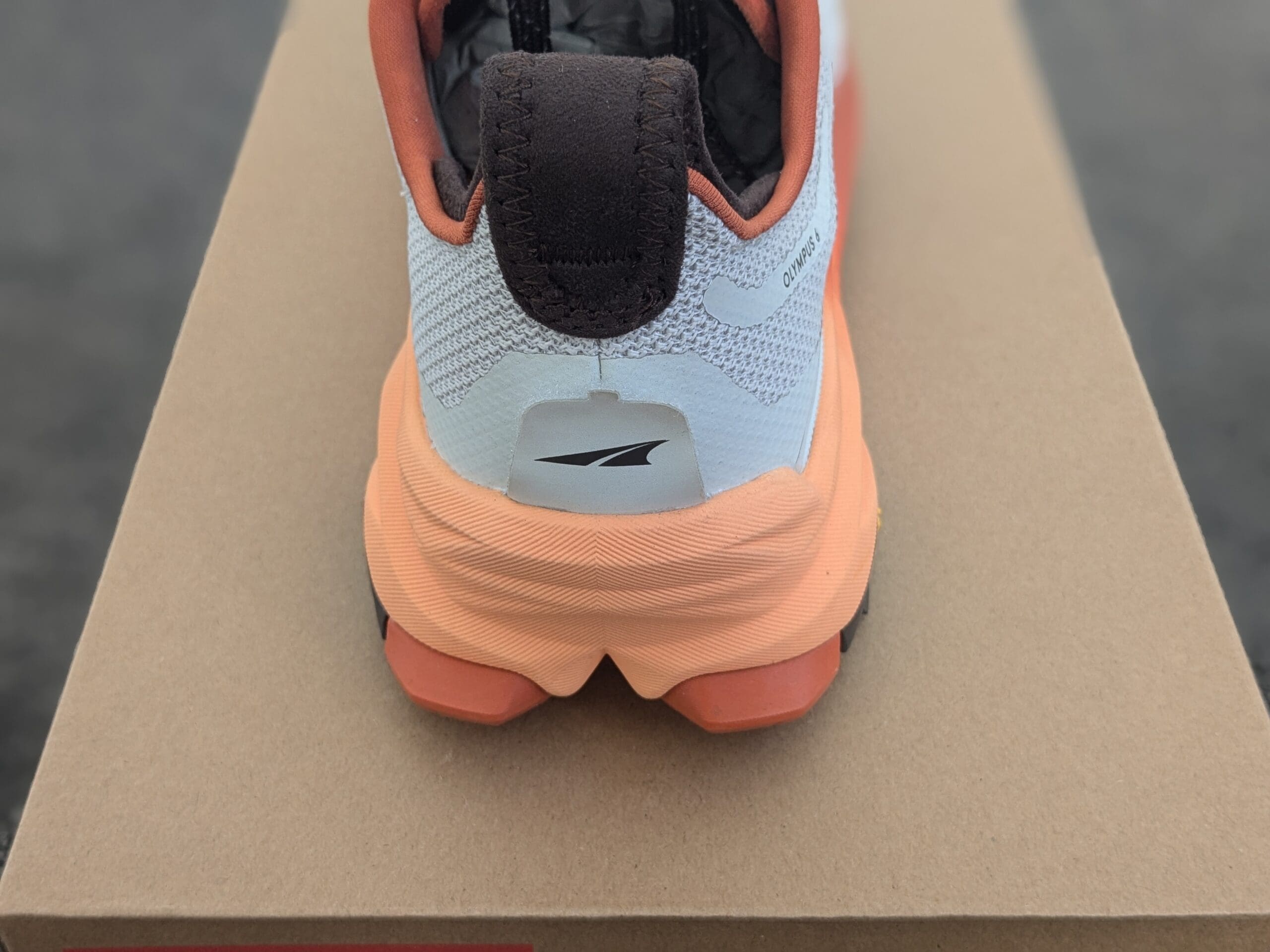
The Olympus 5 had issues with the Vibram peeling away from the foam; we’ve been assured this is fixed. In this iteration, the bond between the Vibram Megagrip rubber and the foam has been strengthened, enhancing the shoe’s durability and reliability. I’ve not seen any evidence of peeling, so I’ll keep my fingers crossed here.
The old-school EVA foam may compress over time, but it’s still usable in the long run. This foam, while initially firm, softens slightly. While living in a world with new, lightweight, exciting foams, the Olympus plays it safe when it comes to a tried and tested model. It’s not a bad thing if you’re taking this on a 100-mile journey.
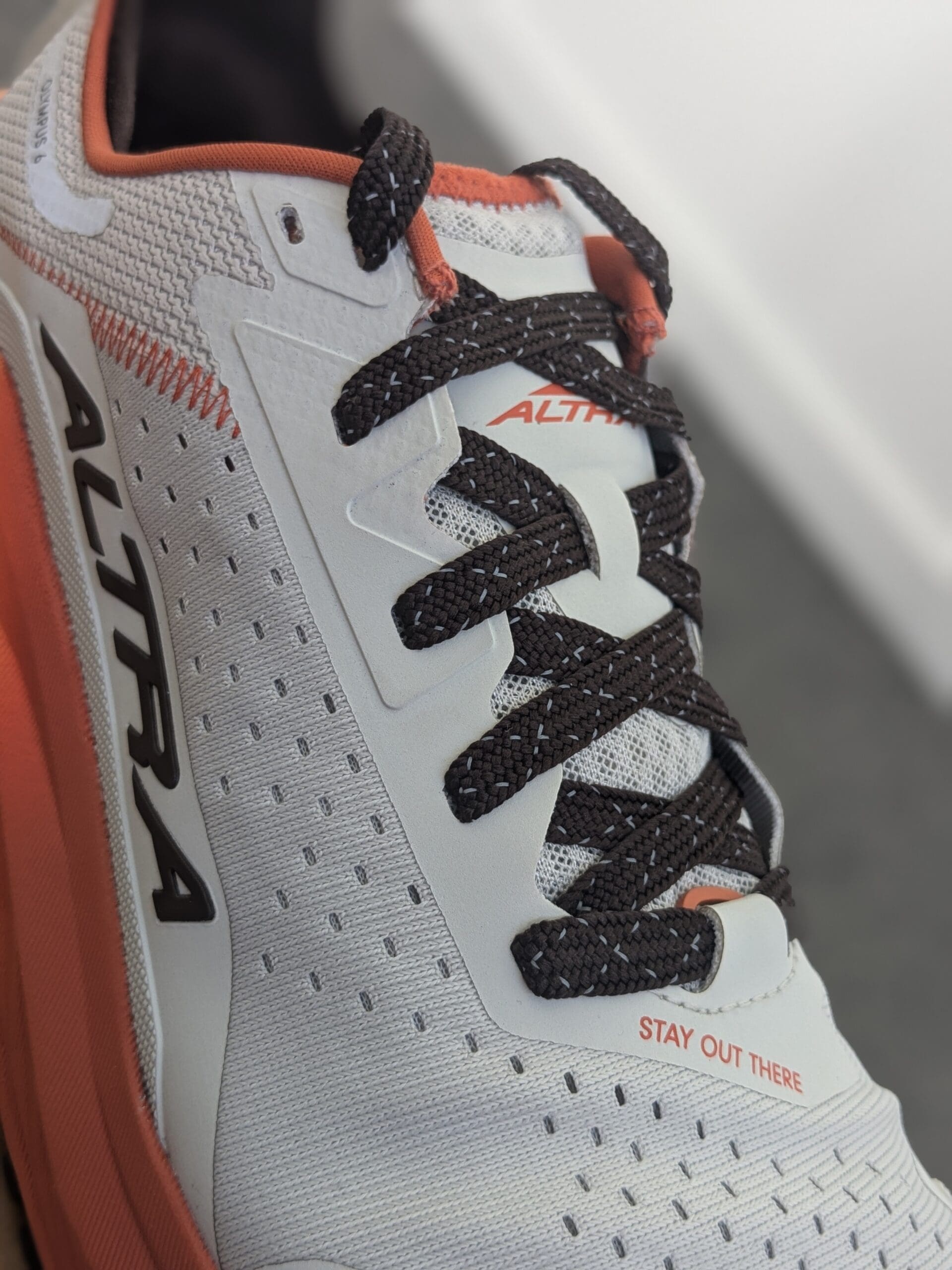
The upper is reinforced with durable materials that protect against wear and tear. The upper features a breathable mesh and strategically placed overlays, which balance ventilation and structural support. The mesh seems tougher than previous iterations, making me hopeful that we won’t see individuals blasting out the side of the shoe with only a few 100 km on them.

Altra Olympus 6
The Altra Olympus 6 is a tool.
A tool to go long distances.
While I don’t believe it should be your go-to training shoe, I can see why some would choose it when hitting their first 100km or 100 miler.
Over time, this tried and tested design has repeatedly proven that it’s capable of going the distance along with you. With the minor updates made since the Olympus 5, hopefully, we also have a more reliable model for the future.
If you’re looking for a lighter, lower-stacked option. The Timp 5, while a slightly tighter fit, has a very similar feel. I’d also love to encourage you to start rotating a more “foot-friendly” Lone Peak or Superior into your rotation too!

Altra Olympus 6
